Ligue 1
World Cup roundup: Heartbreak for England, history for Morocco
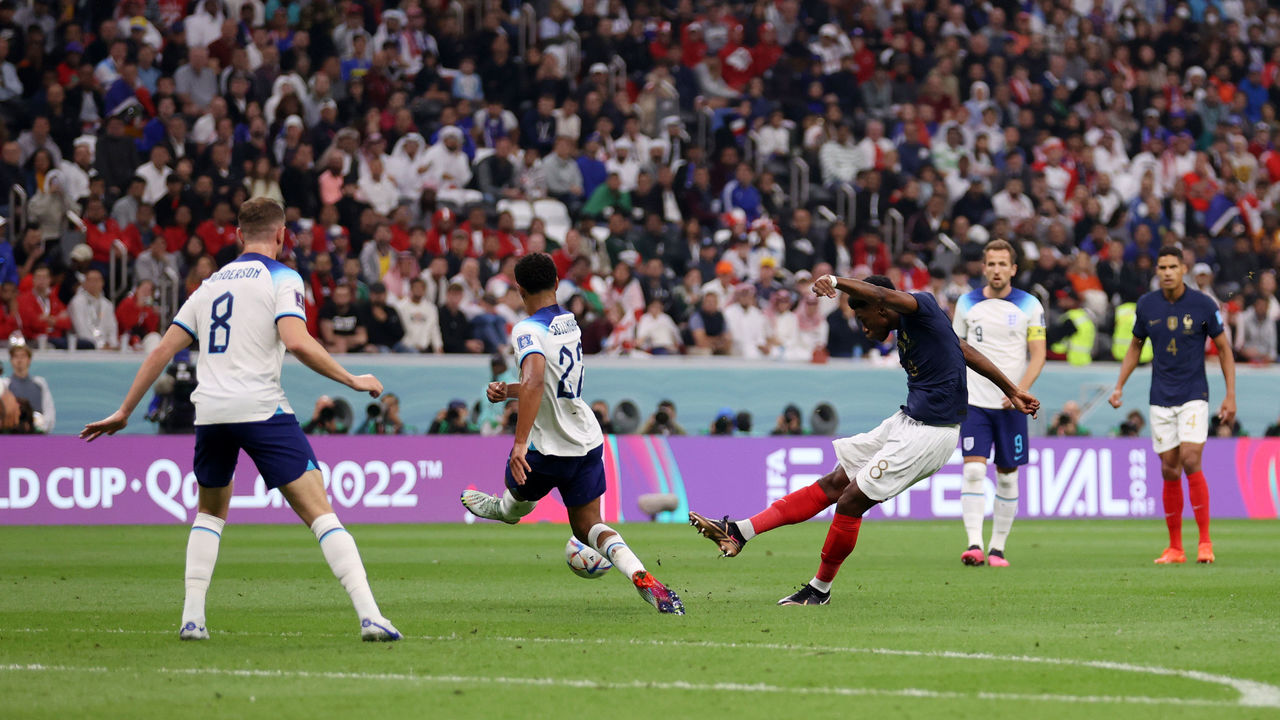
The 2022 World Cup is in full swing. At the end of every matchday, we’ll review the biggest talking points emanating from Qatar and break down all the action on the pitch. Below, we look back on Saturday’s thrilling quarterfinal games.
Illustrious clash lives up to hype
The most anticipated matchup of the 2022 World Cup, at least to date, fulfilled fans’ expectations. These games so often fail to deliver the drama and excitement promised, but France’s 2-1 victory over England Saturday provided a variety of thrills and twists.
Aurelien Tchouameni opened the scoring with a bolt from the blue. England then took over, pinning France deep and looking more likely to win the match after Harry Kane’s equalizer from the spot. Then in the spirit of a true champion, Olivier Giroud delivered a sucker punch for France. England fought back only to see Kane’s second spot-kick balloon over the crossbar. Euphoria and relief for French fans. Despair for England. Shock for everyone else who has watched the assured striker successfully find the net with power and precision from 12 yards on countless occasions. The match – and emotions – fluctuated wildly. This was high-stakes tournament football at its best.
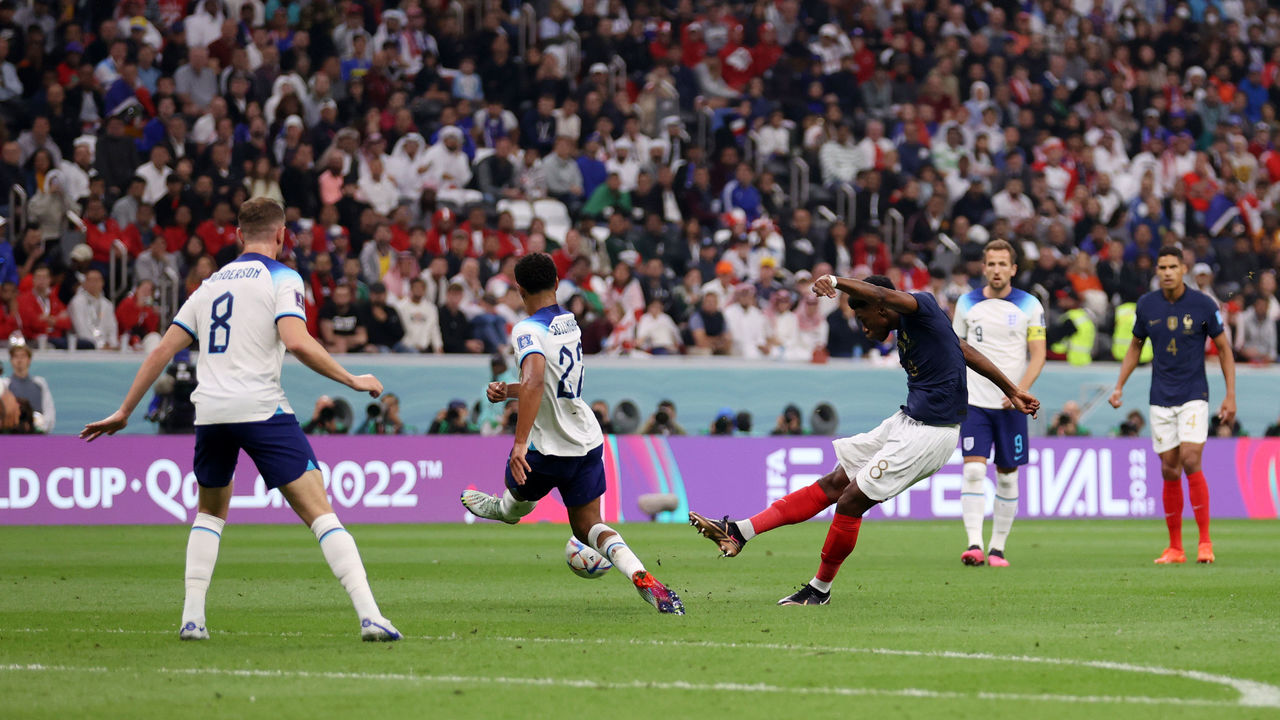
And a fascinating individual battle between Kylian Mbappe and Kyle Walker underpinned it all. What would Gareth Southgate concoct to slow down France’s irrepressible attacking force? His plan worked out for the most part, as Walker rarely ventured forward, sitting back to ensure Mbappe couldn’t exploit space on the break after France won the ball back. Luke Shaw pushed high on the left side to provide balance. The only time Walker did thrust up the field near the French penalty area in the first half, Mbappe pounced, helping to create Tchouameni’s goal in the other direction. Small moments were the game-changers, which is partially what made the contest so intriguing: It felt like it was on a knife edge the entire time.
The rip-roaring foot race between Mbappe and Walker in the second half, in which the Frenchman became one of the only players to ever leave his rapid counterpart in the dust, drew oohs and aahs from the crowd. Everyone was waiting to see it. Walker did a superb job of shutting Mbappe down overall – he didn’t have a shot on target – but the electric forward’s momentary flashes were still spellbinding.
The duel was a microcosm of the entire match: England outplayed France and largely shut the defending champion down but is still heading home heartbroken. The French picked their spots and remain in contention to retain their title, becoming the first reigning champion to reach the World Cup semifinals since 1998. Brief moments made the difference.
A new dawn for African football
The sight of a surly well-traveled foreign coach in charge of an African team has been a common sight for decades. Before Walid Regragui led Morocco to the 1-0 quarterfinal win over Portugal, the only managers to guide an African side to that World Cup stage were Russian (Valery Nepomnyashchy with Cameroon in 1990), French (Bruno Metsu with Senegal in 2002), and Serbian (Milovan Rajevac with Ghana in 2010).
Morocco itself has followed this approach. Of the five coaches to previously lead the country at the World Cup, only one was Moroccan.
But now, Morocco and its regional rivals – and the world by extension – should consider more coaches on the continent. Regragui, who represented Morocco as a player, is the first boss to take an African squad to the World Cup’s final four, and he’s done it by promoting tight bonds within a roster that was previously fragmented under his Bosnian predecessor Vahid Halilhodzic. Regragui built on the defensive foundations left behind while welcoming Hakim Ziyech and Noussair Mazraoui back into the fold, creating a strong unit that has conceded just one goal – and that was an own goal – throughout its five-game run.
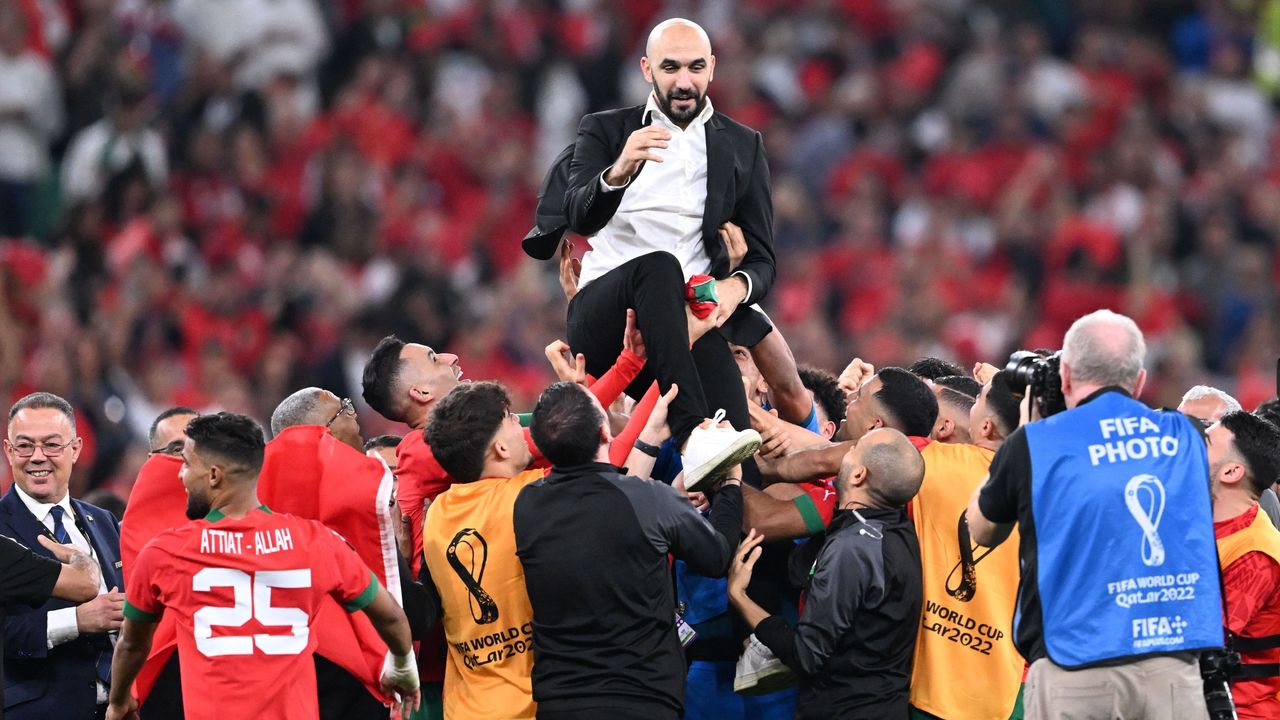
Beating Portugal required some backs-to-the-wall defending and more goalkeeping heroics from Yassine Bounou – it was sometimes desperate. But the victory was another impressive one for an injury-riddled squad. There were last-ditch blocks and timely tackles, but there were also fine examples of evasive midfield play from Azzedine Ounahi and positivity from backup left-back Yahya Attiat-Allah. With better finishing from the substitutes, Morocco would’ve made it 2-0.
Regragui may have put African managers on more clubs’ and countries’ radars. His credentials were already impressive – two league titles in Morocco, the Moroccan Throne Cup, Qatar’s first division, and the African Champions League – but his subsequent success in Qatar should give more respect to his achievements with clubs outside of Europe.
It’s long been the case that Regragui, and other trophy-hoarding African tacticians like Pitso Mosimane, should be higher on big-spending clubs’ lists of targets when they’re on the lookout for a new manager. Regragui could accelerate Africa’s progress in the global game.
Portugal’s anger misguided
Tempers tend to run high after a loss, and more so at the World Cup than in any other football setting – no competition can match the emotional investment and, thus, the output. So it’s understandable players would be totally devastated after bowing out of the tournament, especially in a surprising fashion.
But post-match declarations from irate Portuguese pair Bruno Fernandes and Pepe that Argentine referee Facundo Tello was biased against Portugal because he wanted to make Argentina’s path to the title easier were misguided.
“I don’t know if they’re going to give the (World Cup) to Argentina,” Fernandes said. “I don’t care, I’m going to say what I think and screw them. It’s very strange that a referee from a team that’s still in the cup officiates us. They’ve clearly tilted the field against us.”
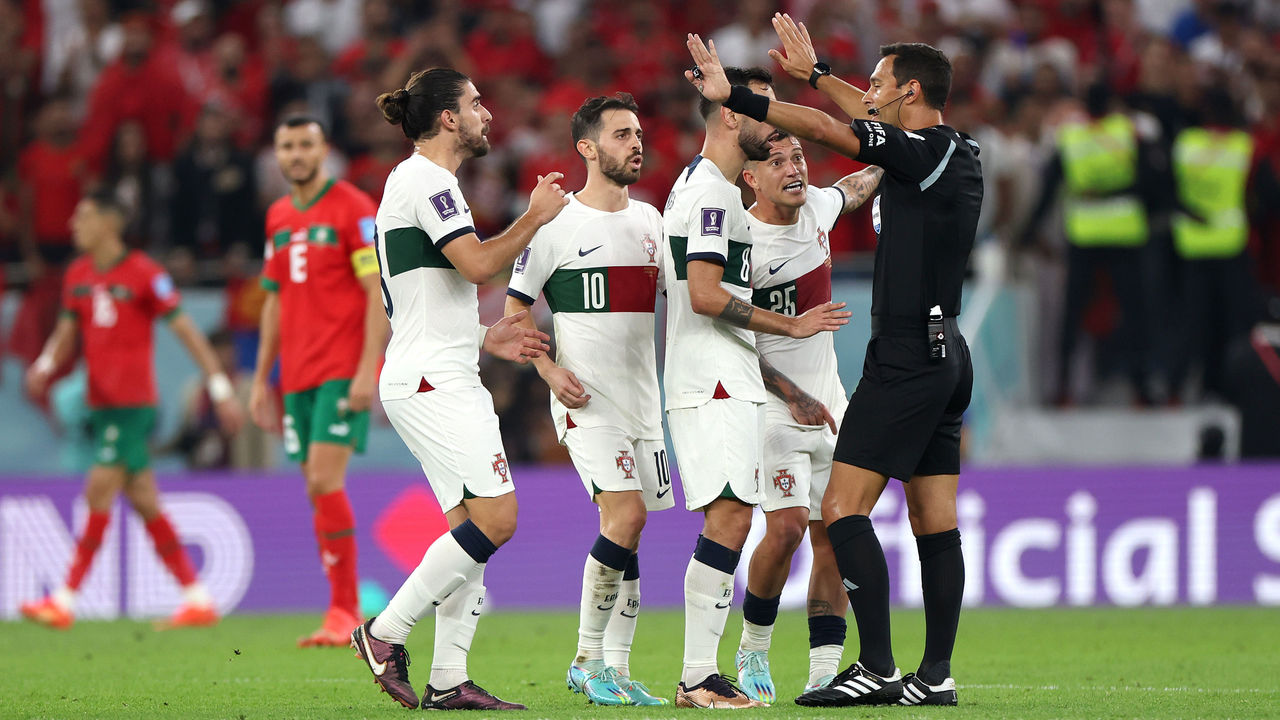
“I think what the referee did today – this is an Argentinian referee. After what Messi said yesterday, it seems there’s something very weird,” added Pepe, referencing Messi’s criticism of the officiating on Friday. “We couldn’t play in the second half because the referee kept stopping the game. I’m very angry, very angry because the referee didn’t let us play.”
After going behind just before the halftime interval, Portugal, despite finishing the match with a handful of attacking players on the pitch – including substitute Cristiano Ronaldo – only had two shots on target. Morocco’s lauded backline and airtight defensive block did their part – of course they did – but the Portuguese often played into the hands of the Atlas Lions, launching crosses into the box instead of playing through the lines. Time and again, towering defender Jawad El Yamiq rose high to head the ball away, forcing Portugal to start all over.
“I think we could have done more, and we failed to do so, so I don’t think we should blame the referee,” Fernando Santos said.
Santos is right. Portugal shouldn’t look for alibis. The team had only ever recorded one World Cup win when trailing at halftime – that came in 1966. After Diogo Costa’s error on Youssef En-Nesyri’s goal, Portugal didn’t do enough to double that total.
What’s next for Southgate?
Southgate can be credited for vaulting England into the 21st century and helping the football-crazed country believe the sport’s biggest prizes were “coming home” after successful runs at the 2018 World Cup and Euro 2020. But England’s wait for a major trophy continues, and despite his positive influence since arriving six years ago, the debate over Southgate’s future as head coach has already begun.
Failure to get the Three Lions over the hump in Qatar is especially damaging for Southgate, given that this is arguably the most talented English team in the 58 years since the nation last won the World Cup. A quarterfinal loss to France is nothing to be ashamed of, as England threatened Les Bleus’ title defense with a brave performance. But this could be the defeat that ends the career of the most successful – and longest-serving – English head coach since Sir Bobby Robson (1982-90).
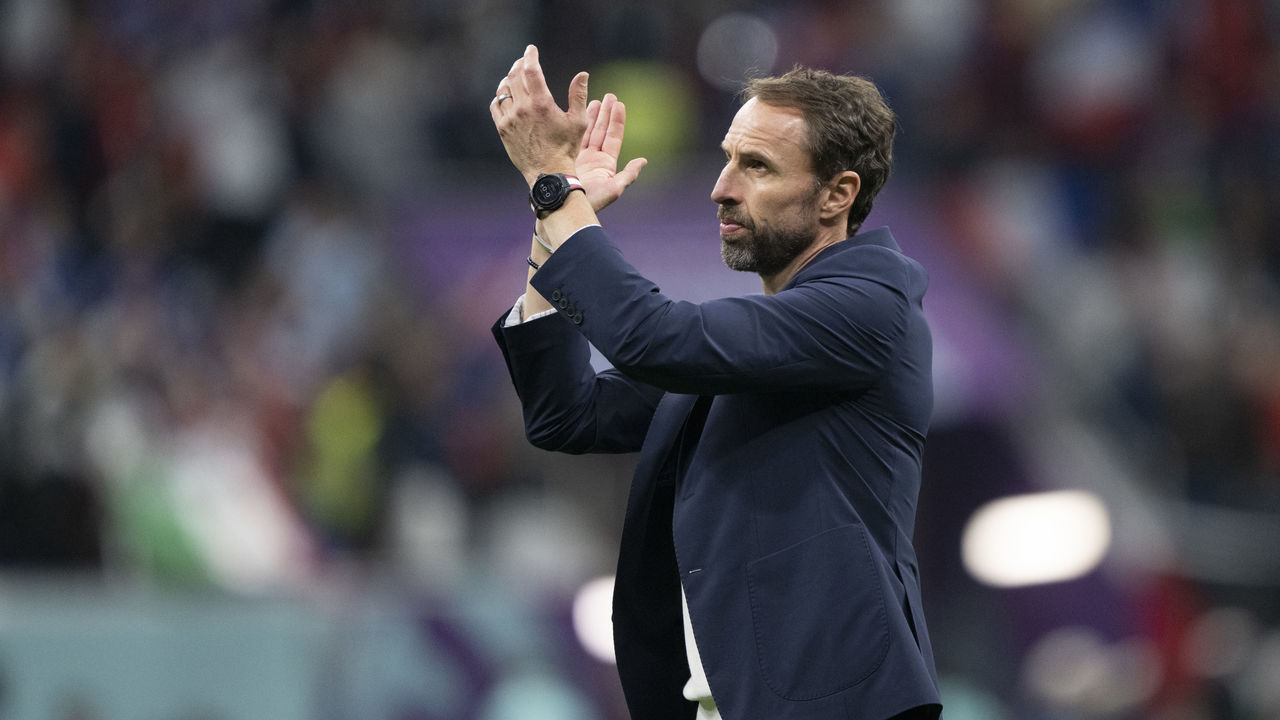
Ultimately, Kane’s gut-wrenching penalty miss will go down as the decisive moment that separated these two heavyweights. However, there were several instances in the game – and throughout the tournament – when Southgate’s tactics and loyalty to familiar players were questioned. He inexplicably preferred Mason Mount to Phil Foden early on in the tournament, while Marcus Rashford was never guaranteed a starting place despite looking like one of the squad’s sharpest forwards. And then there was the head-scratching substitution against France, removing Bukayo Saka in favor of Raheem Sterling amid the Arsenal star’s strong shift.
England’s World Cup drought will have extended to 60 years before it gets another crack. Whether Southgate will be at the helm remains to be seen. Declan Rice said he “loves” playing for Southgate and wants him to stay in charge, but the manager himself will “take a bit of time” to decide on his future. Stay tuned.
Quick free-kicks
France more than just Mbappe
Mbappe is human after all. The French phenom was uncharacteristically subdued against England, ceding possession on several occasions and failing to produce a single shot on target. It was a rare display of mediocrity from a player who’s developed a reputation for routinely blowing everyone’s minds with his unmatched brilliance on the pitch. At this stage in Mbappe’s career, any opposing team that can keep him off the scoresheet should claim that as a victory. Unfortunately for England, though, France showed Saturday it doesn’t need Mbappe’s greatness to win big games. His lingering threat to burst out of nowhere with a goal obviously helps distract opponents, but Les Bleus are so stacked with talent that they can withstand brief episodes without Mbappe tearing teams to shreds. It’s unlikely the soon-to-be 24-year-old will put on another display like that in back-to-back games, but the French are in safe hands with Antoine Griezmann and Giroud, a pair who’ve played considerable roles in France’s return to the semifinals.
Titanic tussle on the cards
Hakimi is ready to meet Mbappe in the semifinals ? pic.twitter.com/8VF5GLESmq
— ESPN FC (@ESPNFC) December 10, 2022
After taking on Walker Saturday, Mbappe’s next task will be even more difficult, as he’ll go toe-to-toe with Achraf Hakimi in the semifinals. The two friends – club teammates at Paris Saint-Germain – are two of the fastest and most explosive players in world football. Their tussles on the training pitch in Paris are surely a sight to behold – if your eyes can keep up with two speedy blurs racing back and forth, of course. Now we all get to see what those battles are like on one of the sport’s grandest stages. Get your popcorn ready.
England will be back
England, after falling behind to Tchouameni’s audacious strike, dictated play against the reigning world champion for large stretches. The Three Lions outplayed France, created better chances, and often looked more likely to score. This was one of the best performances of Southgate’s entire tenure – and England lost anyway. That’s the harsh reality of tournament football. This sport can be cruel. But the pieces are in place for the English to be a force at major tournaments for years to come. Rice, Foden, Saka, Mount, Rashford, Trent Alexander-Arnold, and Jude Bellingham are all 25 or younger. So is Reece James, who missed the tournament through injury. The future remains exceedingly bright for an England squad still learning what it takes to win on the biggest stage. That takes time. The Three Lions will be back.
Stat of the day
Barring a shocking twist in 2026 – when he’ll be 41 years old – Ronaldo’s illustrious career will end without a World Cup knockout goal.
0 – Cristiano Ronaldo has failed to score in all eight of his knockout stage appearances at the World Cup (inc. third place play-off), going 570 minutes without scoring and taking 27 shots in the process. Exit. pic.twitter.com/HyTrpoUad0
— OptaJoe (@OptaJoe) December 10, 2022
Tweet of the day
“Waka Waka.”
This time for Africa!! ??? #WorldCup
— Shakira (@shakira) December 10, 2022
You may like
Ligue 1
Biggest winners and losers from the January transfer window
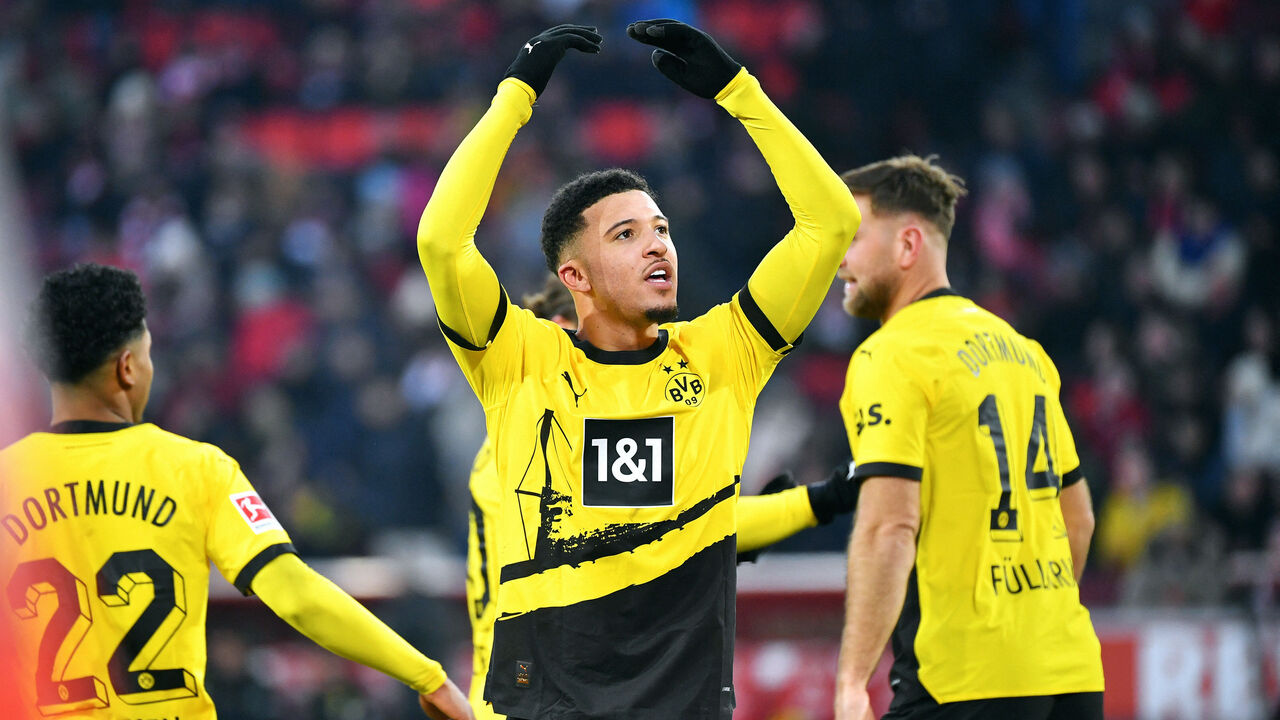
Find the biggest stories from across the soccer world by visiting our Top Soccer News section and subscribing to push notifications.
Another transfer window is officially in the books. Below, theScore picks out the biggest winners and losers from a muted January signing period.
Winners: Jadon Sancho and Kalvin Phillips
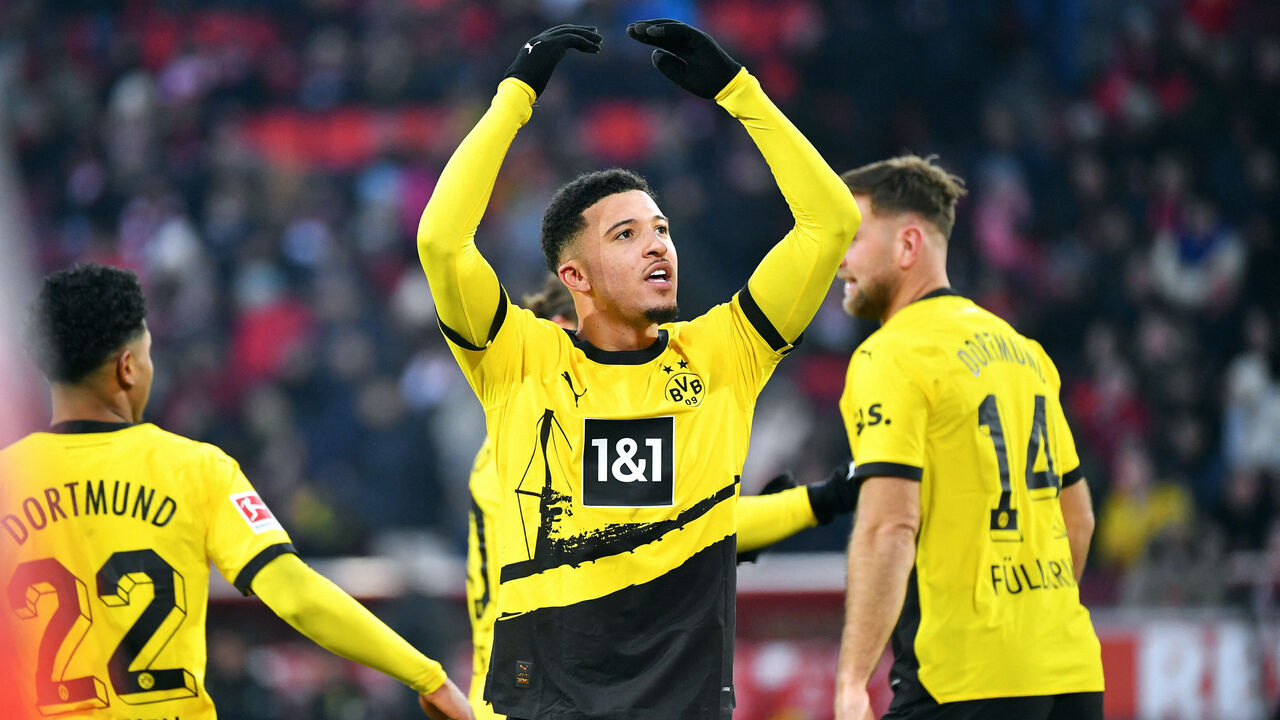
Nobody needed a move more desperately than these two.
An increasingly bitter – and alarmingly public – feud with headstrong manager Erik ten Hag turned Sancho’s Manchester United spell into a nightmare. The English winger, who joined the club for €85 million, had been frozen out of the squad since August before sealing a merciful return to Borussia Dortmund on loan. The beaming smile that accompanied his official unveiling by Dortmund said it all. Sancho, for the first time in months, was happy. He was “home,” surrounded by familiar faces and people who have seen him at his very best, when he was one of the most electrifying young players in world football. He’s made an immediate impact at Dortmund, shaking off the rust after nearly four months on the shelf to instantly become a key player for Edin Terzic.
His compatriot, and fellow Euro 2024 hopeful, was in a similar boat. Phillips’ 2022 transfer to Manchester City was, in no uncertain terms, a disaster. He started just two Premier League matches in 18 months under Pep Guardiola, and new midfield arrivals made any prospect of increased playing time highly unlikely. England manager Gareth Southgate still believes in his abilities, but continuing to rot on the City bench was obviously detrimental to his hopes of playing any role at this summer’s tournament. Along came West Ham United to rescue him. David Moyes will give the 28-year-old every opportunity to play and showcase, for Southgate and any other interested parties, that he’s still capable of performing at a high level.
Loser: Jordan Henderson
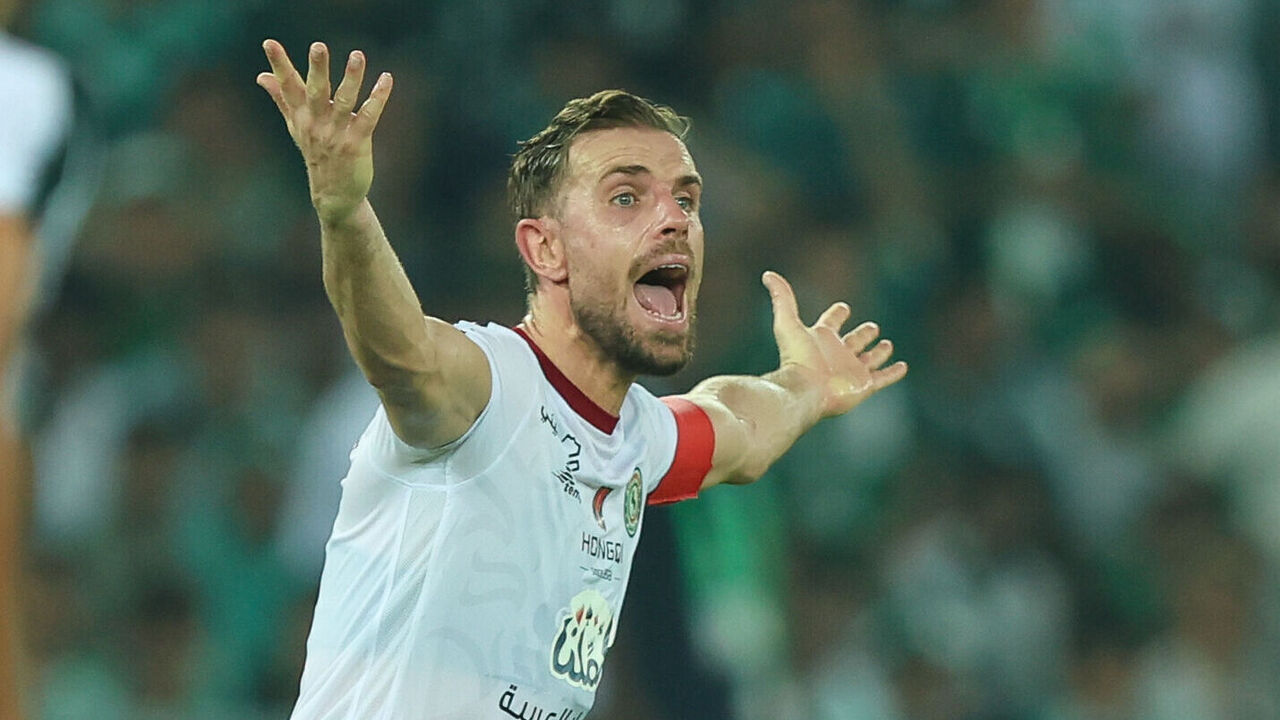
Tail tucked firmly between his legs, Henderson is back in Europe.
By any possible metric, his surprising decision to sign for Al-Ettifaq in the summer backfired spectacularly. Just six months, and a measly 17 appearances, after claiming he was in the Middle East “to stay” and help the Saudi Pro League grow, he hightailed it to Ajax. His family apparently had reservations about his move to the Middle East to begin with, but he charged forward anyway, and, after being one of the sport’s most prominent supporters of the LGBTQ+ community during his time at Liverpool, he torpedoed the goodwill he had built.
And for what?
The midfielder took a significant pay cut to terminate his Al-Ettifaq contract and join the struggling Dutch giants. Because he reportedly backloaded a large amount of his salary, he didn’t even cash in like some of his peers, which always seemed to be the sole motivation in the first place.
Winners: Atletico Madrid
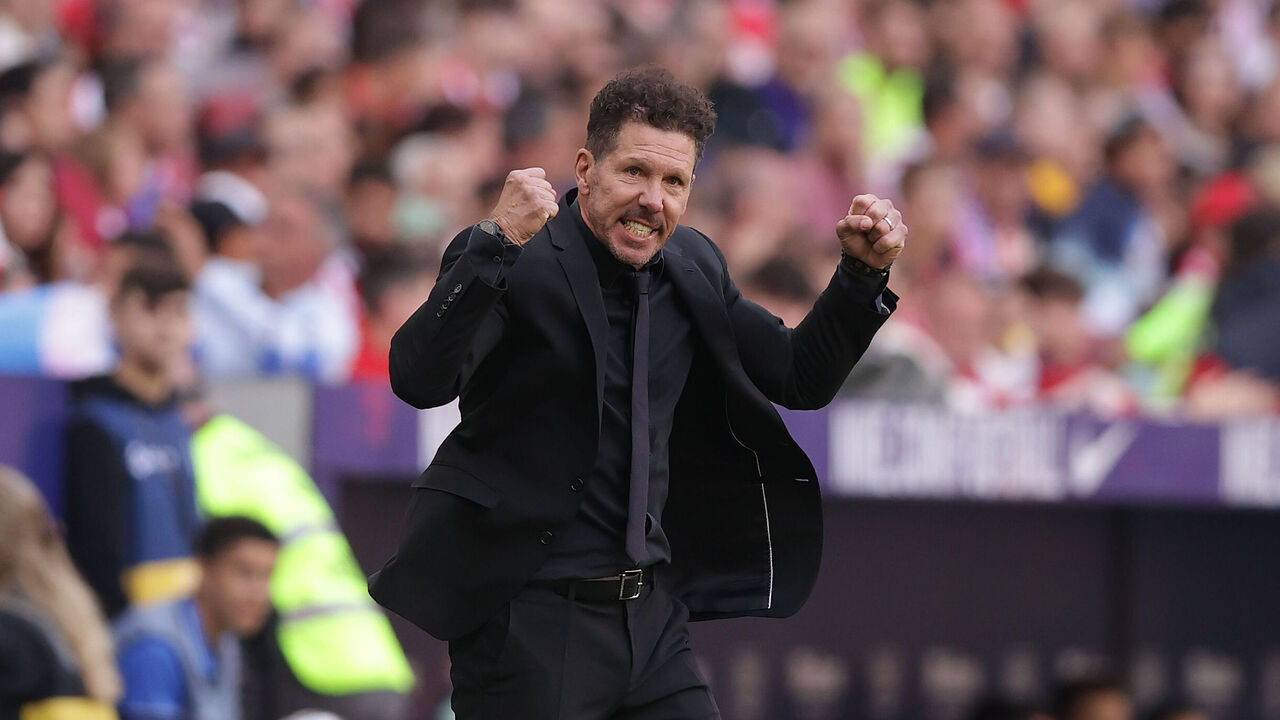
Half of Europe was tracking Arthur Vermeeren during the January window, with some of the continent’s top sides trying to formulate ways to sign the ascendant 18-year-old either immediately or, more likely, in the summer. In the end, Atletico Madrid beat them all to the punch, landing the prodigious midfielder for what looks like a very modest fee; Vermeeren will reportedly cost €18 million up front, with Royal Antwerp potentially collecting an additional €5 million in bonuses.
Diego Simeone has been craving a deep-lying player who can help rejuvenate his midfield, and the blossoming Belgian, already with extensive first-team experience at Antwerp despite his youth, fits that bill. Vermeeren was handed the start at the first opportunity after joining Atletico, showing that Simeone has no qualms about throwing him into the fire right away. The manager, and the club, think he’s ready right now. While other young players have faltered in the past at Atletico, their newest gem looks set to thrive.
Losers: Napoli
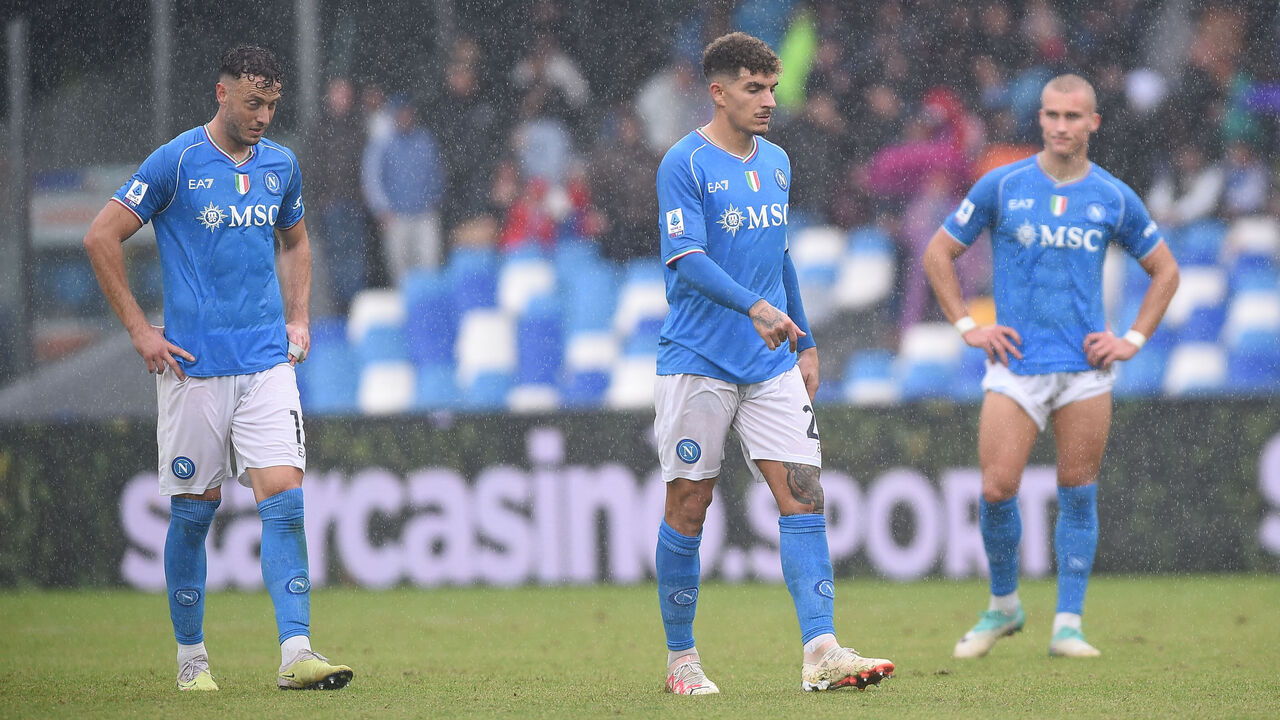
When navigated properly, the January transfer window can be a turning point in a club’s season. With some nimble moves, teams can either put themselves over the top and ignite a push for silverware or, if they’re struggling, get a timely boost and get back on track.
That’s precisely what Napoli needed. They didn’t get it.
The rudderless Serie A champions, 22 points off the summit this season, failed to land top target Lazar Samardzic, and a potential deal for solid defender Nehuen Perez never materialized. Cyril Ngonge is an intriguing addition up front, but their other signings all come with questions: Leander Dendoncker and Pasquale Mazzocchi, who was sent off on his debut, are little more than depth pieces that don’t move the needle; Hamed Traore still has potential, but he’s recovering from malaria and may not play much of a role at all this season. Worst of all, their best player, Victor Osimhen, appeared to confirm that he’s already planning his eventual exit. Not ideal.
Winners: Benfica
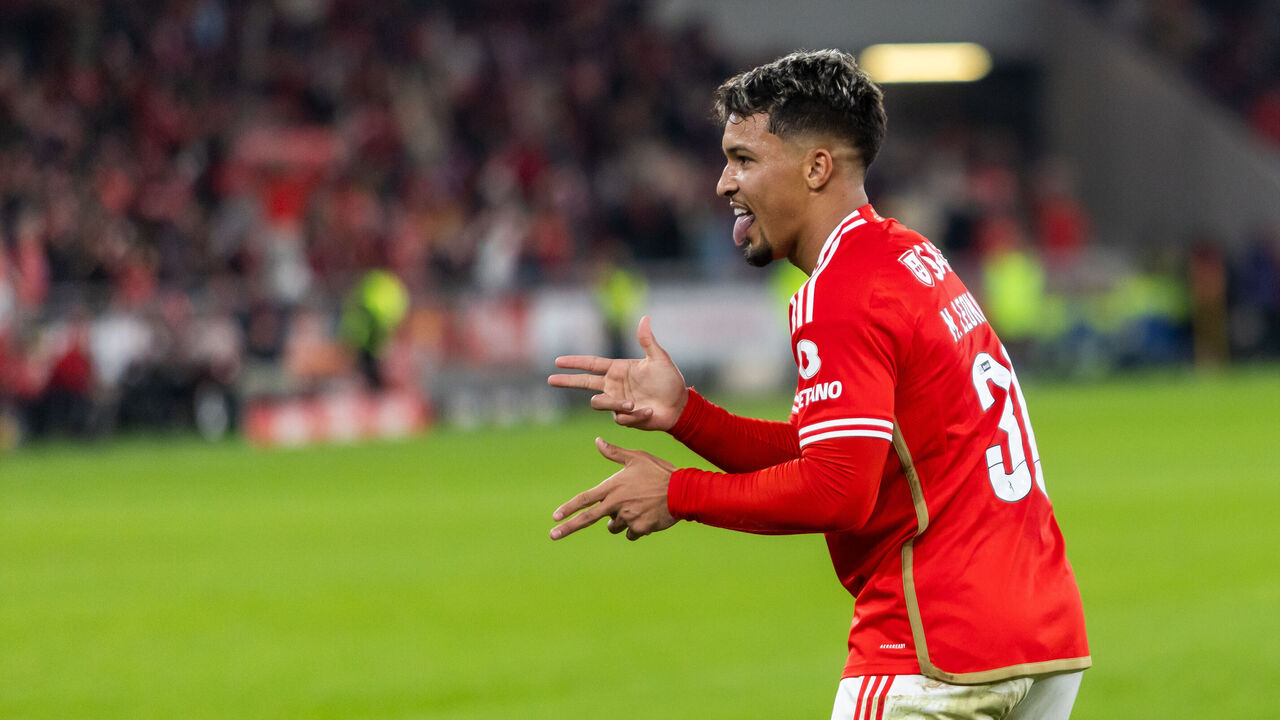
If it ain’t broke, don’t fix it.
Benfica have made a very profitable habit out of scouring the South American market for young talent, signing some of the continent’s most promising players for modest sums, and then flipping them for extravagant fees to clubs across Europe. See: Fernandez, Enzo. Sticking with a similar formula, the Portuguese outfit landed Brazilian striker Marcos Leonardo from Santos and Argentinean winger Benjamin Rollheiser from Estudiantes de La Plata in January. They paid under €30 million combined for the two; the latter arrived on an initial loan that will become permanent in the summer.
Don’t be surprised if one, or both, are on the move to one of Europe’s leading sides in the very near future. Leonardo, in particular, will be in high demand if his scoring exploits from Brazil translate to Europe, with Benfica setting his release clause at €150 million in anticipation of the phone ringing. Perhaps striker-needy Chelsea will come calling again in the summer?
The South American pipeline, in general, came to the fore in January – Paris Saint-Germain spent a combined €40 million to acquire Lucas Beraldo and Gabriel Moscardo from Sao Paulo and Corinthians, respectively – but few teams operate as skillfully as Benfica in that area.
Loser: Karim Benzema
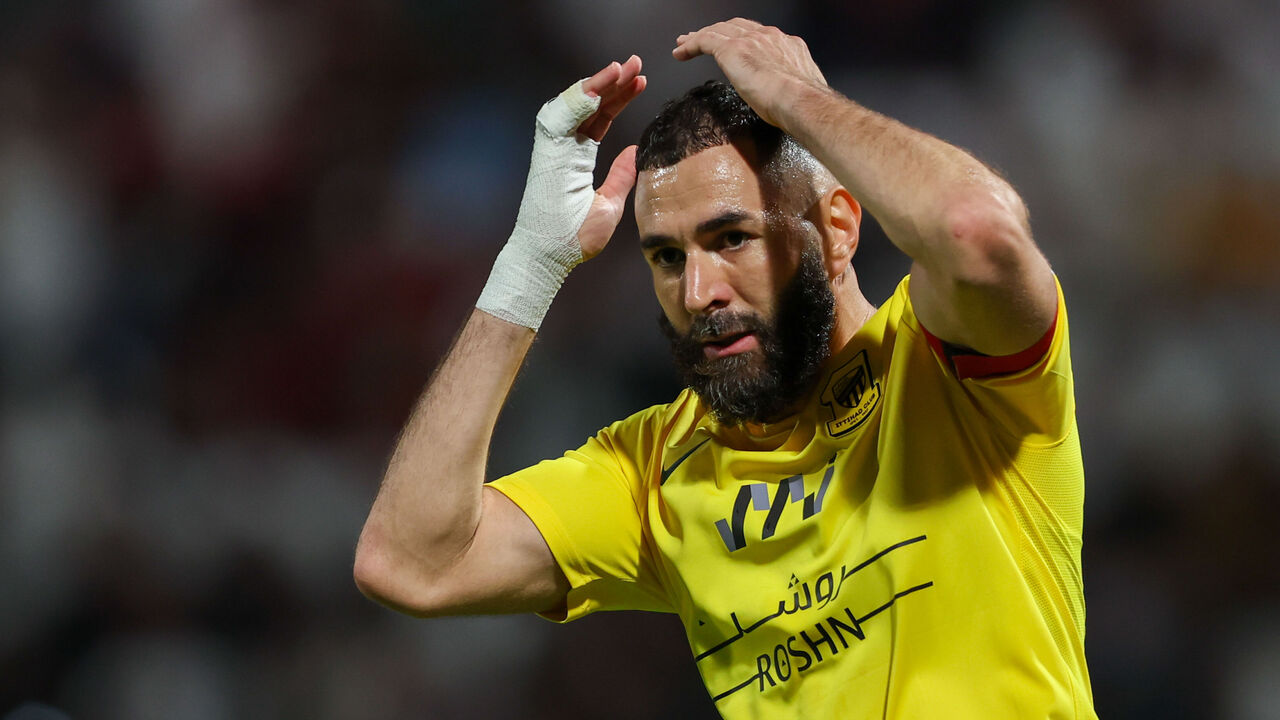
In what’s quickly becoming a familiar refrain among players who moved to Saudi Arabia in search of bottomless riches, Benzema made his displeasure with his situation at Al-Ittihad very clear. The former Ballon d’Or winner, the Saudi Pro League’s prized summer signing, reportedly went AWOL and returned to Jeddah from the league’s midseason break 17 days late, apparently in the hopes of engineering a transfer back to Europe.
There were rumblings of interest from Lyon, his former team, and Chelsea. Neither amounted to much at all. Al-Ittihad remained adamant that the unsettled striker wouldn’t be sold, which was apparently the impetus for a tense meeting with manager Marcelo Gallardo. And, after all that, here we are. Benzema, unlike Henderson, didn’t get his move. Al-Ittihad retained their biggest star, but his mood and outlook are unlikely to change overnight, if at all. The player is unhappy, the club has a fractured relationship to try and mend, and the league, after wooing so many high-profile names just six months ago, has to try and convince onlookers that, actually, everything is fine and the project remains on course. There are no winners here.
Ligue 1
Latest news and rumors from the January transfer window
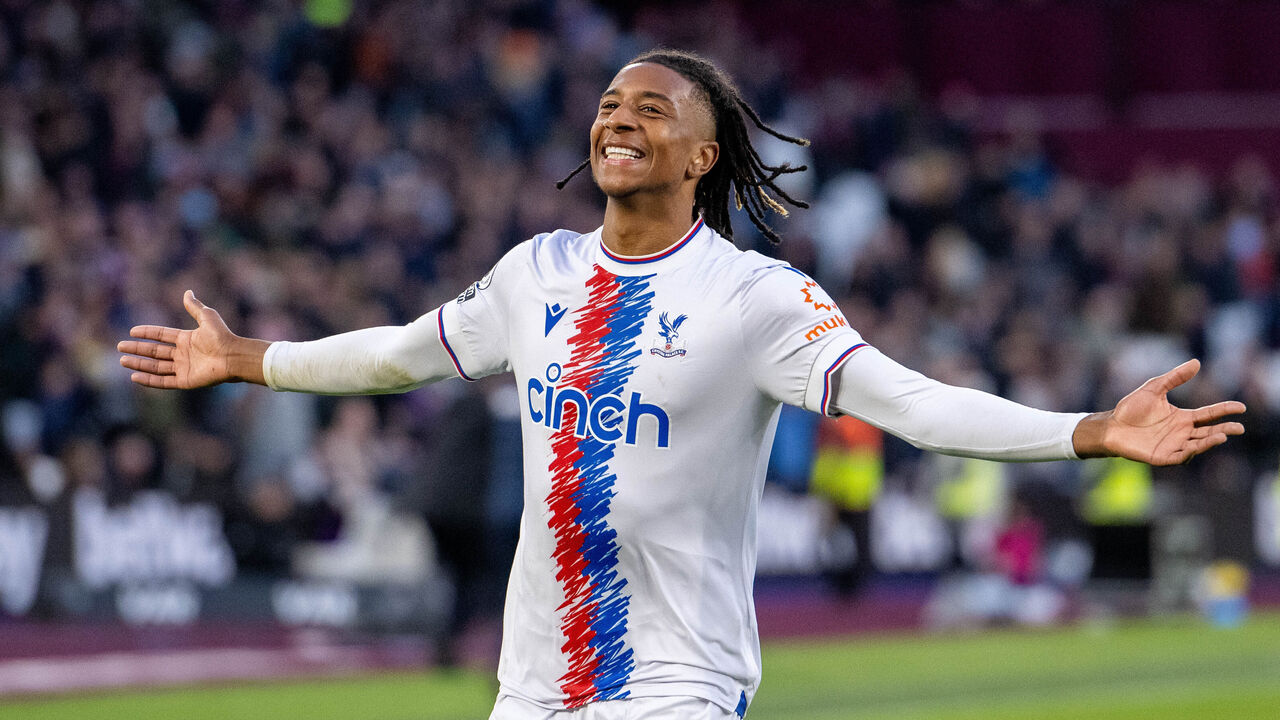
Find the biggest stories from across the soccer world by visiting our Top Soccer News section and subscribing to push notifications.
With the January transfer period now open, the rumor mill is in overdrive throughout world football. theScore will keep you up to date on all the latest transfer buzz until the end of the window.
Jan. 1
Brentford’s big valuation: Ivan Toney is being tracked by several clubs in January, including Arsenal and Chelsea, but Brentford will only listen to offers for the striker worth at least £80 million. (Ben Jacobs)
Cash to burn: With Jim Ratcliffe and INEOS set to provide a £235-million cash injection after their recent investment in the club, Manchester United can be active in January without running afoul of Financial Fair Play. (The Times)
Varane allowed to depart: Manchester United won’t trigger an option to extend Raphael Varane’s expiring contract by an additional year, meaning he’s free to sign a pre-contract agreement with other teams this month. (Daily Mail)
Reds plan for the future: Liverpool have deployed scouts to watch Michael Olise to assess whether the Crystal Palace winger can be a suitable long-term replacement for star forward Mohamed Salah. (Football Insider)
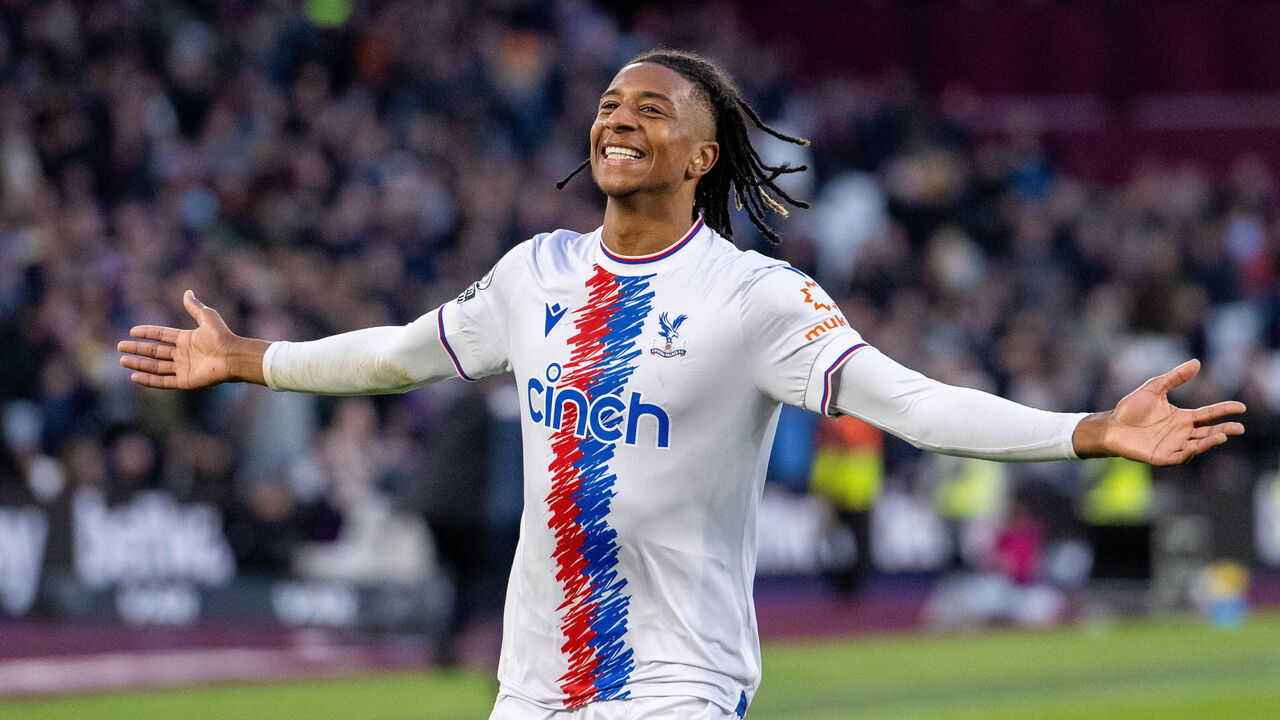
Carvalho not staying for long: After Liverpool recalled him from his disappointing loan spell at RB Leipzig, Fabio Carvalho could be set for a temporary move to Championship leaders Leicester City. (Sky Sports)
Monaco moving for Kehrer: Despite competition from AC Milan, Roma, and Atalanta, AS Monaco are leading the race to sign Thilo Kehrer. Negotiations with West Ham are advancing to the final stages. (Fabrizio Romano)
Frankfurt staying busy: After confirming Donny van de Beek’s arrival on Monday, Eintracht Frankfurt continue to shop in England. The German outfit is close to adding towering Wolves striker Sasa Kalajdzic on loan. (BILD)
Looking at Lookman: Juventus, Nice, and multiple Premier League teams are considering making a move for Ademola Lookman, who’s developed into one of Serie A’s most exciting attackers at Atalanta. (Daily Mail)
Dec. 31
Spurs to bolster backline: Hit hard by defensive injuries, Tottenham are working to sign Radu Dragusin. Genoa want €30 million for the Romanian center-back, who’s agreed to personal terms with Spurs. (Fabrizio Romano)
Benzema not going anywhere: Karim Benzema is struggling in Saudi Arabia and getting plenty of flak from Al-Ittihad supporters, but the club has no intention of letting its marquee player leave in January. (Foot Mercato)
Allegri not sold on Phillips: Juventus boss Max Allegri isn’t convinced that Kalvin Phillips is a good fit for his tactical scheme and could veto a potential move for the seldom-used Manchester City midfielder. (Calciomercato)
Reds recall Carvalho: Liverpool cut Fabio Carvalho’s RB Leipzig loan short because they weren’t satisfied with his playing time – he played just 165 Bundesliga minutes for Leipzig, making only one start. (Fabrizio Romano)
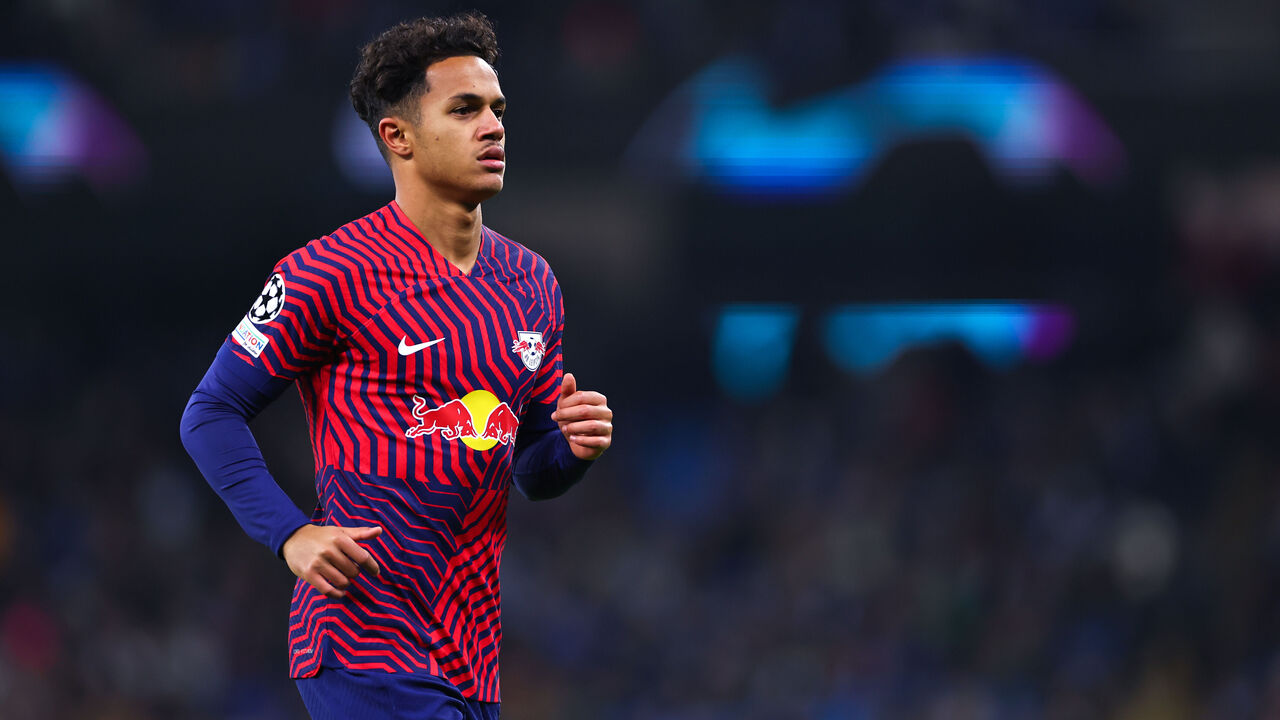
Navas wanted Madrid return: When Thibaut Courtois went down with a torn ACL in the summer, Keylor Navas, still at PSG, contacted his former team about returning. Real Madrid weren’t interested, though. (Marca)
Dybala available for peanuts: A €13-million release clause in Paulo Dybala’s Roma contract will kick in on Jan. 1 for non-Italian clubs. Roma won’t be able to reject the offer if a foreign team activates the clause. (Gazzetta dello Sport)
Napoli need a boost: Desperately trying to spark their dismal season into life, Napoli are negotiating with Udinese to sign Lazar Samardzic. The two sides are closing in on an agreement for a January deal. (Fabrizio Romano)
BVB eyeing Maatsen: With playing time limited at Chelsea, Ian Maatsen is considering his options in January. Borussia Dortmund, who could ship Ramy Bensebaini out, are in the market for some help at left-back. (BILD)
ETH wants Evans to stay: Very little has gone right for Manchester United this season, but manager Erik ten Hag has been so pleased with Jonny Evans’ performances that he wants the veteran to extend his contract. (Daily Star)
Dec. 30
Mbappe saga continues: Real Madrid will make another attempt to sign impending free agent Kylian Mbappe, and plan to offer him £23 million per season, plus a monstrous £110-million signing bonus. (Marca)
Arsenal seeking striker: Looking to boost their title push, Arsenal have identified a pair of Nigerian Victors – Osimhen and Boniface – as alternatives if they can’t land Brentford’s Ivan Toney. (Daily Express)
Guirassy’s modest fee: Red-hot Stuttgart striker Serhou Guirassy, who has 17 Bundesliga goals this season, is available for just €17.5 million in January. Manchester United could trigger his release clause. (Football Insider)
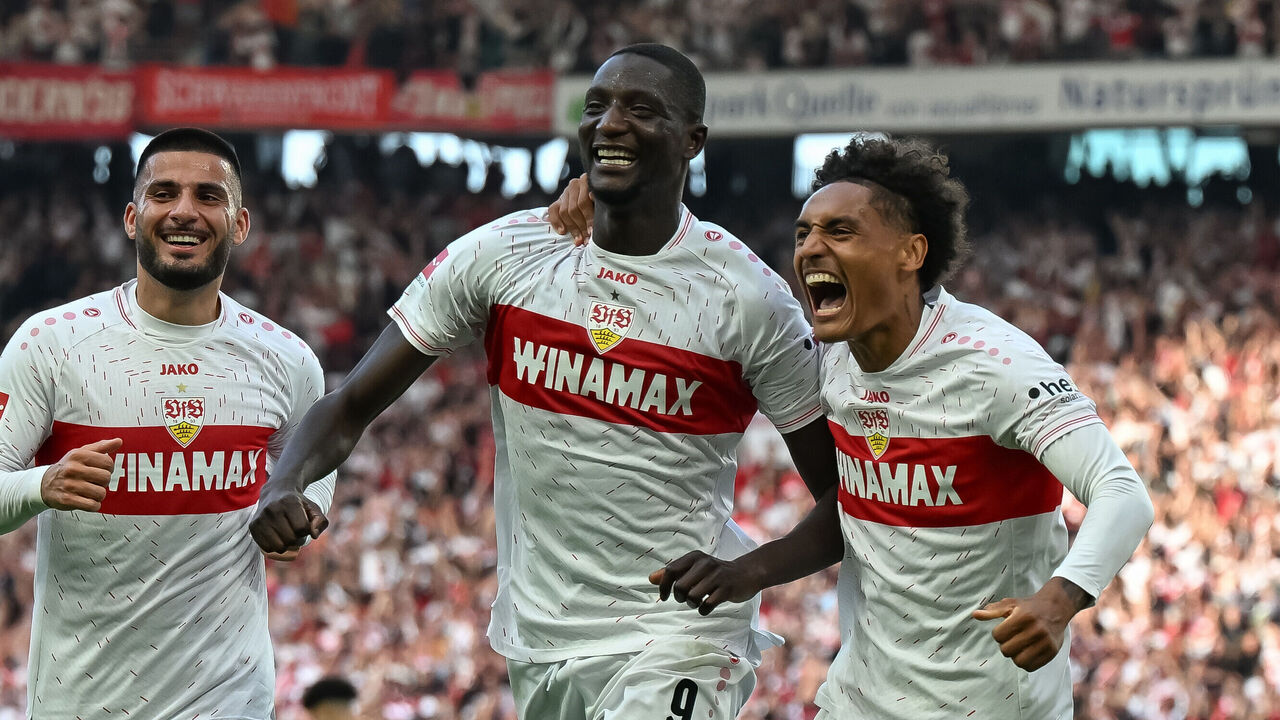
Solanke drawing interest: Tottenham are among the clubs considering a move for Bournemouth’s Dominic Solanke, who is tied for second in Premier League scoring this season with 12 goals. (The Independent)
Juve, Arsenal talk exchange: Juventus want to sign Arsenal youngster Charlie Patino, who’s on loan at Swansea City. The Bianconeri are willing to offer striker Moise Keane to the Gunners to facilitate the deal. (Tuttosport)
Arsenal willing to listen: Arsenal bench boss Mikel Arteta is open to the departures of Eddie Nketiah, Emile Smith Rowe, and Aaron Ramsdale in January if hefty offers arrive for any of the three Englishmen. (Mirror)
Bad news for Silva’s suitors: Benfica manager Roger Schmidt has told the likes of Liverpool and Manchester United that Antonio Silva, the in-demand 20-year-old center-back, is not for sale in January. (90min)
Dec. 29
De Ligt in shop window: Arsenal are considering a move for Bayern Munich’s Matthijs de Ligt, but with the German club already depleted in defense, any transfer would likely have to wait until the summer. (The Athletic)
Firmino ready to leave: He’s only been there for six months, but Roberto Firmino’s time at Al-Ahli could already be coming to an end. A switch to another Saudi club is possible, while Turkey is also an option. (talkSPORT)
The plan for Echeverri: Manchester City are on the verge of signing 17-year-old Argentine Claudio Echeverri from River Plate. He’ll spend time at City’s sister club Girona before joining Pep Guardiola’s squad. (Mundo Deportivo)
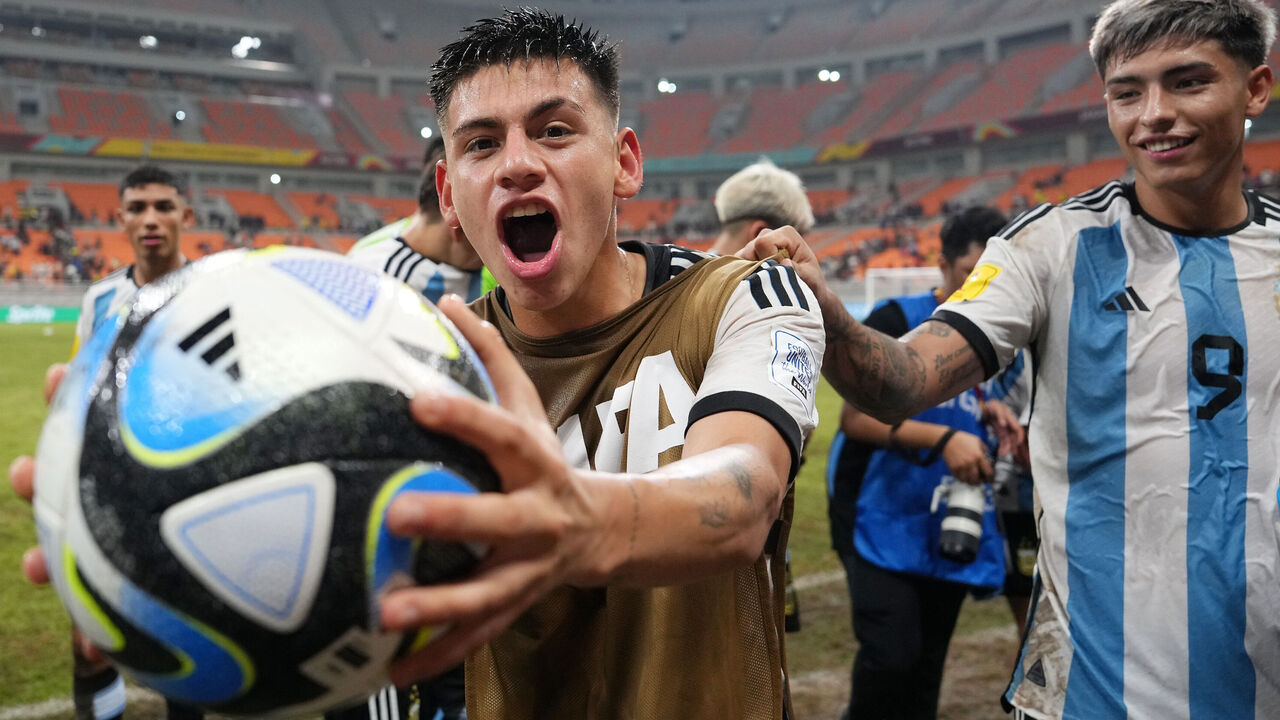
Someone rescue Ekitike: Crystal Palace could offer Paris Saint-Germain striker Hugo Ekitike a much-needed avenue to playing time. The 21-year-old has only been handed nine Ligue 1 minutes this season. (Evening Standard)
Gerrard demands signings: Winless since October, Steven Gerrard is under increasing pressure at Al-Ettifaq. The under-fire manager wants his club to be active and improve the quality of the squad in January. (Daily Mail)
Chelsea’s newest youngster: Chelsea have struck a deal to sign 17-year-old midfielder Pape Daouda Diong from Senegalese side AF Darou Salam. It will become official when he turns 18 next summer. (Fabrizio Romano)
Dec. 28
Griezmann intrigued by MLS: Antoine Griezmann, enjoying another prolific season with Atletico Madrid, says he won’t play for another European club. The Frenchman is open to closing out his career in Major League Soccer. (AS)
Phillips has options: Newcastle believe they can beat out competition from Juventus, Everton, and Crystal Palace to sign Phillips, the England international who seems destined to leave Manchester City. (The Telegraph)
Benfica being proactive: Joao Neves, the latest phenom in Benfica’s pipeline, is in talks to extend his contract. The club wants to increase his release clause to €150 million amid interest from Manchester United. (O Jogo)
Roma fans scupper deal: Roma considered a move for ex-Juventus defender Leonardo Bonucci to help alleviate their defensive concerns, but the club turned to other targets following negative fan reaction. (Gazzetta dello Sport)
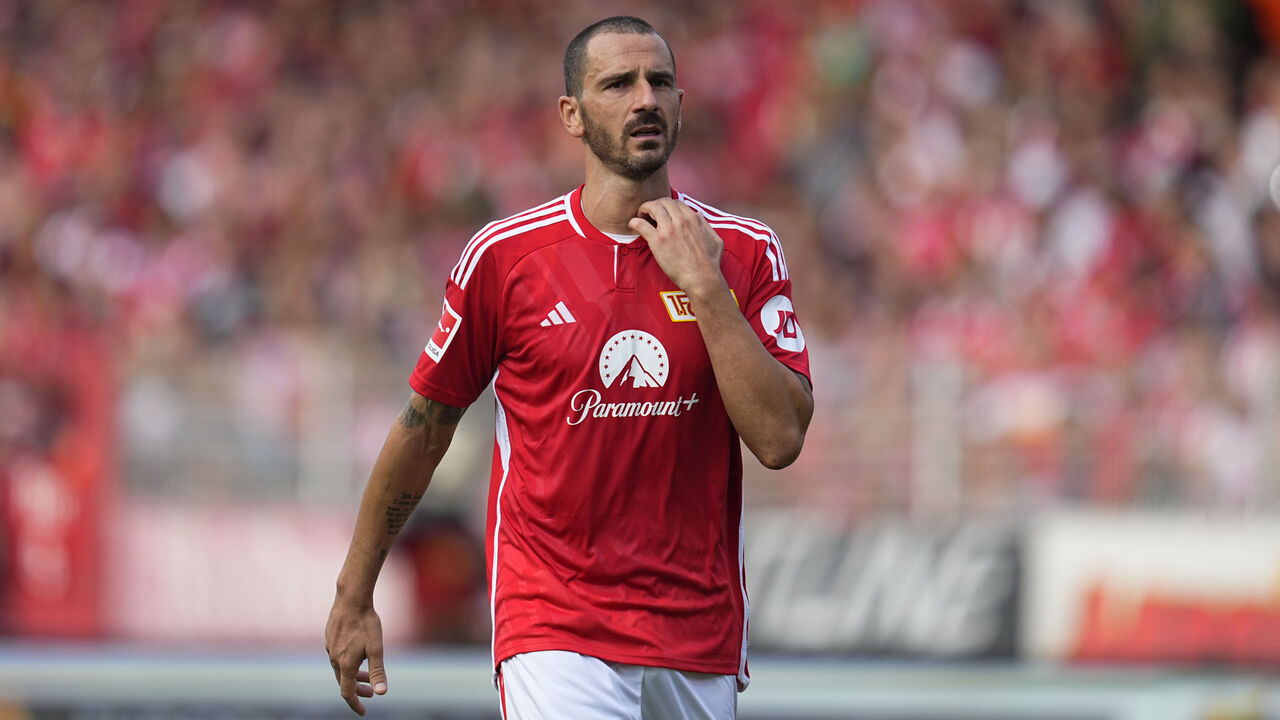
Man Utd scout Gyokeres: Manchester United are casting a wide net in their striker search, with Viktor Gyokeres among the names monitored. The Swede, 25, is having a breakout season with Sporting CP. (Correio da Manha)
Liverpool want Jedi: With Andy Robertson still sidelined long term after shoulder surgery and “not even close” to returning, according to Jurgen Klopp, Liverpool are eyeing Fulham left-back Antonee Robinson. (90min)
Savio staying put: One of the catalysts behind Girona’s fairytale title push, Savio is turning heads across Europe. Currently on loan from Troyes, he’ll remain within the City Football Group umbrella. (Diari de Girona)
Dec. 27
The battle for Inacio: Arsenal are leading Liverpool in the race for 22-year-old Sporting CP defender Goncalo Inacio, who has a €60-million release clause in his contract. (A Bola)
Inter target attacking trio: Looking for more depth behind star forwards Lautaro Martinez and Marcus Thuram, Inter are considering moves for Mehdi Taremi, Anthony Martial, and Armando Broja. (Gazzetta dello Sport)
Atleti block Juve’s approach: Juventus, perennially looking to improve their midfield, have reignited their interest in Rodrigo de Paul, but Atletico Madrid have made it clear the World Cup winner isn’t for sale. (Mundo Deportivo)
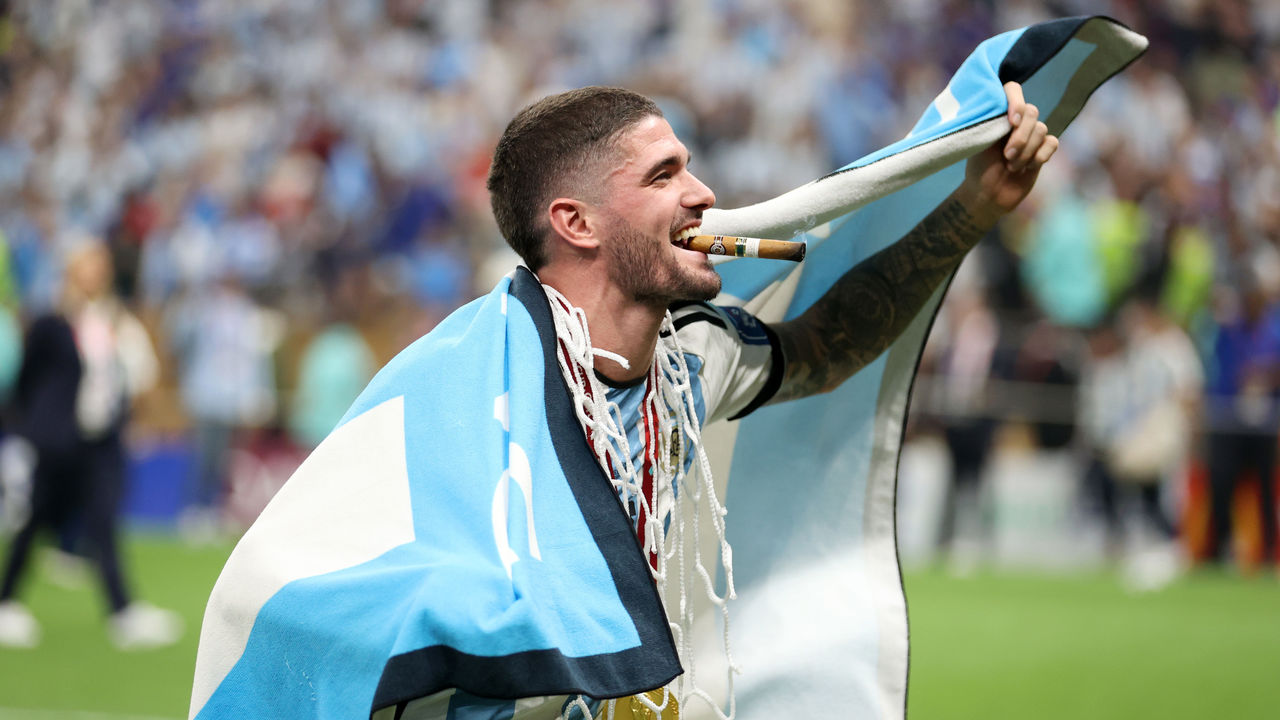
PSG busy in Brazil: After beating the competition to Lucas Beraldo of Sao Paulo, PSG also struck a €20-million deal with Corinthians for 18-year-old midfielder Gabriel Moscardo. (Fabrizio Romano)
Romantic return for Varane: Manchester United defender Raphael Varane, 30, is considering a move back to French club Lens, where he began his senior career over a decade ago. (L’Equipe)
Ligue 1
Key thoughts and analysis from Matchday 3 in the Champions League
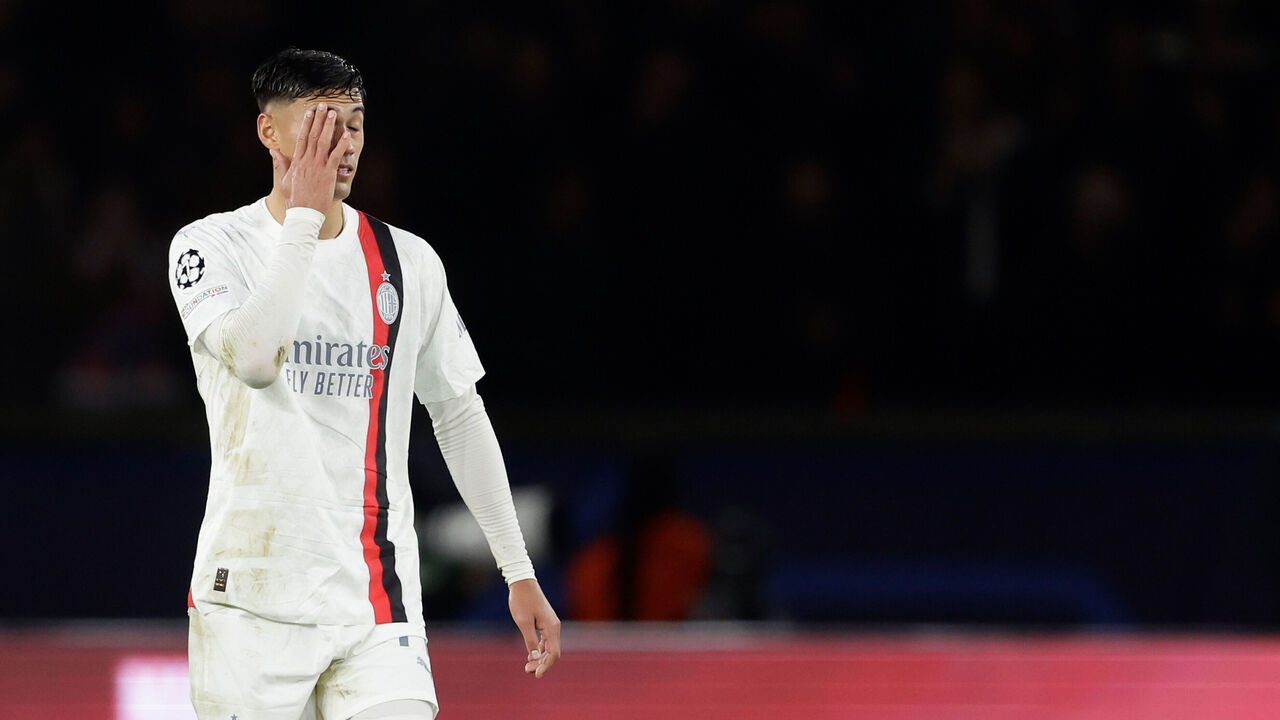
The Champions League rumbled on this week. Below, we dissect the biggest talking points from Matchday 3 in Europe’s premier club competition.
AC Milan going backward – and fast
AC Milan’s last few seasons were about taking steps forward. Their project began in earnest when they reached the Champions League for the first time in eight years. It continued with their first Serie A title in 11 years and hit another level last season when they made the Champions League semifinals for the first time since the 2006-07 campaign.
Now they sit dead last in their Champions League group with two points and zero goals scored after losing 3-0 to Paris Saint-Germain on Wednesday. While the Rossoneri remain in second place in Serie A, they have struggled against teams in the top half of the table, losing 5-1 to Inter Milan and 1-0 to Juventus, and have scored just once in their last four matches in all competitions. They had two players sent off in their last three matches and collected 10 yellow cards in that span. This is far from the exciting ensemble that made fans dream again. This is a cheap knock-off.
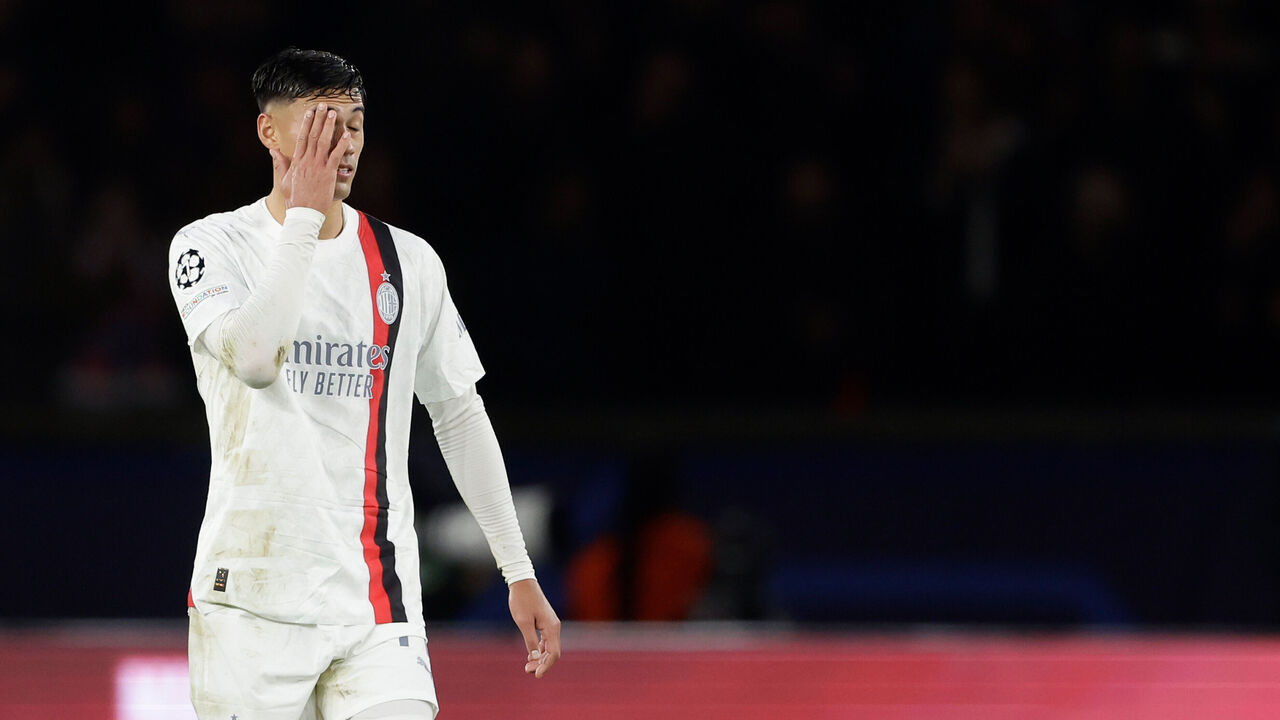
Part of that is down to injuries. Milan are missing Ruben Loftus-Cheek, Ismael Bennacer, Samuel Chukwueze, and Noah Okafor, robbing them of two midfield starters and a pair of high-impact substitutes. But that doesn’t excuse the lack of character and organization in Stefano Pioli’s side. It’s unbelievable that a team that once played with such precision and attacking fervor could become so porous in midfield, so weak on the ball, and so meek in front of goal. They’re no longer playing like a team, passing the ball with any particular rhythm, or winning duels or second balls. Milan’s attack has been reduced to a run-and-gun offense, with Rafael Leao and Christian Pulisic the only ones creating anything of note. But because they have struggled for consistency, so too have Milan.
Fans have watched this physical and tactical deterioration for months. The only reason Milan qualified for the Champions League was because of Juventus’ points deduction in 2022-23; they would’ve otherwise finished in fifth place. Pioli struggled all of last season to find the right balance with his players, and he somehow managed to keep his job despite the massive shake-up at board and management level.
It’s a great shame because things are finally looking up off the pitch. Three years removed from reporting nearly €200 million in losses, the club has turned a profit. But Milan look less and less like a contender on any front. – Anthony Lopopolo
Magpies brought back down to earth
No goals from their opening two group-stage games proved Borussia Dortmund aren’t the swashbuckling knockout-round regulars we’ve seen in previous Champions League campaigns. This is a team trying to compensate for Jude Bellingham’s departure and a poor goal return from its wealth of attacking options. To further complicate matters, Julian Brandt – Dortmund’s most dangerous player with four goals and five assists in all competitions this term – was a late scratch from Wednesday’s trip to Newcastle United due to a calf injury.
So, don’t be fooled by Newcastle’s shortage of European pedigree. Felix Nmecha’s excellent first-half finish securing a 1-0 away win for Dortmund is a huge shock that blows open this season’s most intriguing quartet.
Group F after three matches
| # | Team | GD | Points |
|---|---|---|---|
| 1 | PSG | +2 | 6 |
| 2 | Dortmund | -1 | 4 |
| 3 | Newcastle | +2 | 4 |
| 4 | AC Milan | -3 | 2 |
Newcastle crash-landed from their historic victory over Paris Saint-Germain. Callum Wilson could’ve twice leveled when his close-range shot was saved by Gregor Kobel and a late header hit the underside of the crossbar, and Anthony Gordon’s deflected effort deep into stoppage time also hit the woodwork. But it took too long for the Magpies to click and prove they were the better team.
And when the synergy isn’t there, Newcastle don’t have an individual who can provide a key moment – a touch, a trick, a goal from nowhere. The top teams in this competition have a player like that. Newcastle are perhaps too early in the Saudi-funded project to have one; they have a group of grafters, but a player who can carry a team on his own is harder to find.
Miguel Almiron is an example of Newcastle’s lack of stardust. He doesn’t have the outrageously high level of technical ability you’d expect from a mercurial attacking midfielder, but he has more tactical sense and a higher work rate than many players of his ilk. That unique combination probably makes him popular among his teammates and Newcastle’s traditionally blue-collared support, but, in a decisive moment, you probably don’t want him there. His touch can be too heavy and his final ball can be wayward. In the last action of the match, Almiron wastefully skied a shot over the bar when the box was packed with black-and-white shirts.
The elite in this competition get the job done.
It may seem premature to say, but the home defeat could be extremely costly for Newcastle. Two away matches at Dortmund and PSG await Eddie Howe’s men, potentially setting up a high-stakes meeting with Milan on Tyneside to conclude the group on Dec. 13. – Daniel Rouse
Savvy Bayern pass test
The look of relief after the full-time whistle said it all. There were hugs and handshakes all around in celebration of Bayern Munich’s escape from Turkey with three points after one of their toughest tests so far this season.
Galatasaray, who came into the contest on a high after beating Manchester United at Old Trafford last time out, looked like they could end Bayern’s 15-game winning streak in the Champions League group stage. That incredible run appeared to be in jeopardy when Mauro Icardi equalized with a first-half penalty that triggered a loud burst of joy from the raucous Gala fans. The home side, using an aggressive approach, caused problems for Bayern and should have taken a lead into halftime. They came out of the break with a similar desire to play on the front foot.
But that opened the door for Bayern. The savvy Bavarians eventually took advantage of the tiring Turkish side, with Harry Kane scoring what proved to be the winning goal.
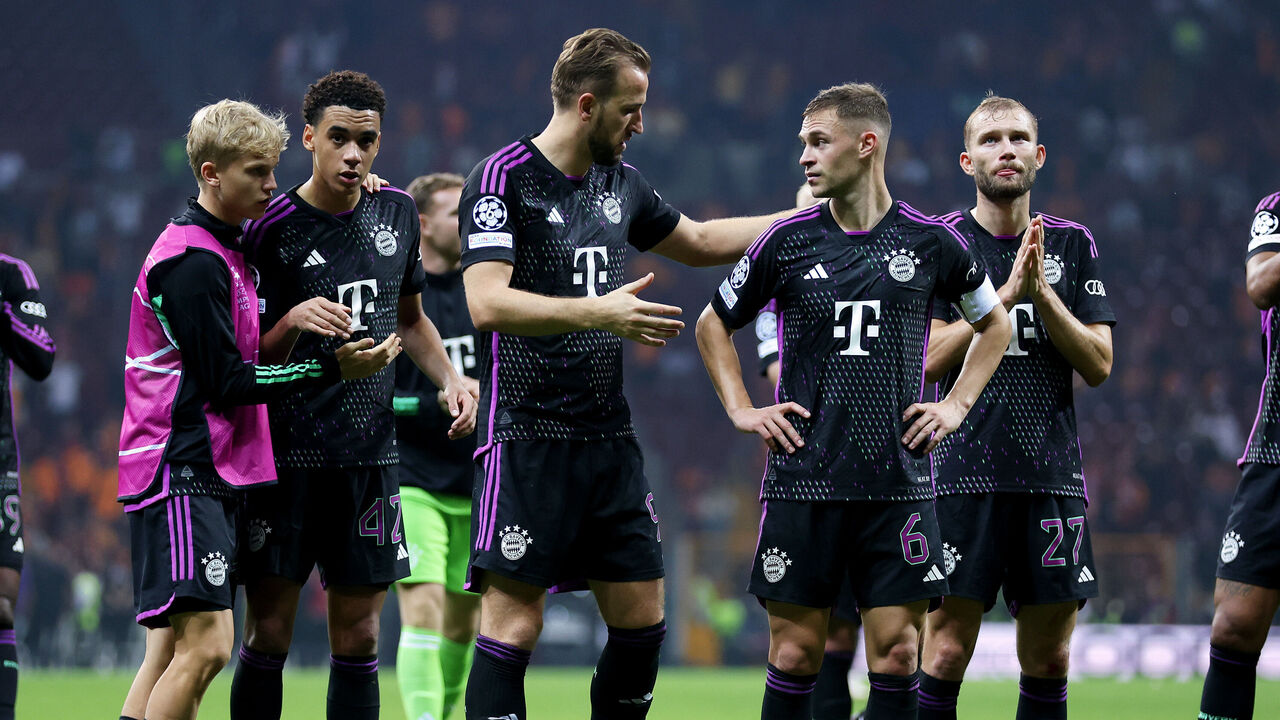
Kane stole the headlines with his 11th goal (and sixth assist) in all competitions since his summer arrival, but Leroy Sane did his part to help offset Bayern’s injury woes, continuing his bounce-back season with another great performance. After a difficult 2022-23 campaign – remembered more for his squabble with former teammate Sadio Mane than his exploits on the pitch – the spotlight is, thankfully, back on his talents. Sane didn’t add to his goal tally Tuesday, but he was a menace who proved almost impossible to contain.
Jamal Musiala also continued to shine, showcasing just how good the German club still is during an injury crisis that might’ve proved devastating to most other teams. Now, it’s just a matter of time before Bayern qualify for the knockout rounds once again.
If they’re this good without a host of first-team regulars, the best is yet to come for the unbeaten Group A leaders. – Gordon Brunt
Can Bellingham keep up ridiculous form?
Advanced statistics tell us Bellingham has scored more goals than any player should have this season. But they don’t tell the whole story. The reason Bellingham has 11 goals in his first 12 games for Real Madrid is much more nuanced than any expected-goal ratio.
Take the winner he bagged Tuesday against Braga: Bellingham joined the attack late, benefitted from the space that Braga’s back-pedaling defenders left behind, and waited patiently for Vinicius Junior to find him at the edge of the area. His finish was superb. His spatial awareness was even better.
Bellingham has made a habit of scoring off of these late runs into the penalty area. He does what Lionel Messi has done so well, drifting out of sight and mind before coming sharply into focus. He doesn’t have to burst a lung to get into scoring position. He times it perfectly.
The 20-year-old is also an exceptional finisher. He doesn’t have to bludgeon the ball with venom. Just as he understands the space around him, Bellingham knows exactly where to place the ball.
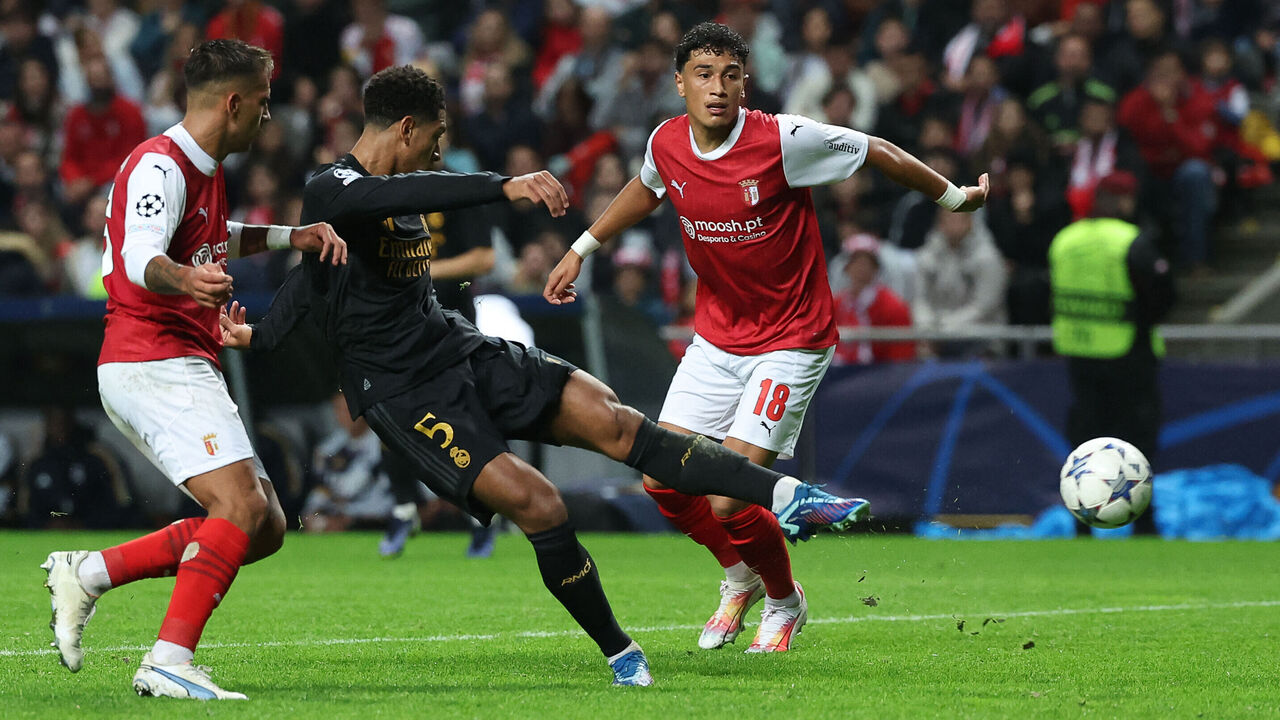
His finish Tuesday looked effortless precisely because it didn’t need that much juice. He picked out the bottom corner with the same finesse he used when he lofted the ball over Athletic Bilbao ‘keeper Unai Simon in August. And Bellingham was as patient as he was when he baited Osasuna’s goalkeeper before squeezing the ball through his legs earlier this month.
Madrid manager Carlo Ancelotti noticed these qualities in Bellingham early on and allowed him the freedom to roam. That’s a rarity in football these days. There are so few high-scoring midfielders in today’s game because most of them must follow certain tactical patterns. The shackles are off here.
But it would be equally foolish to say Bellingham is a throwback No. 10. He can win balls and track back and do all the things the playmakers of the 90s and 2000s hated doing. His four tackles and two interceptions in the 3-2 win over Napoli led his team, as did his two interceptions against Braga on Tuesday.
But the dirty work never comes at the cost of scoring. – Lopopolo
Quick free-kicks
Zaire-Emery mature beyond his years
Warren Zaire-Emery exudes poise on the pitch. The 17-year-old sparkled against AC Milan on Wednesday, logging two assists and looking like the most assured midfielder on the pitch despite his age. “He does everything well, defensively and in attack. He is aggressive, good technically, has good vision, can score and set up goals,” Luis Enrique said after the match in which the PSG academy product led his side with four key passes. Zaire-Emery has a feel for the game that can’t be taught, and that’s part of what makes his potential so frightening. He’s only going to get better as he matures physically, but he already boasts an uncanny ability to time passes correctly and find the right spaces to exploit in possession. After letting so many of their prodigious homegrown youngsters depart over the years in favor of high-priced names, let’s hope PSG actually hang on to this blossoming superstar and continue giving him opportunities to shine and grow. – Gianluca Nesci
Barcelona have a future after all
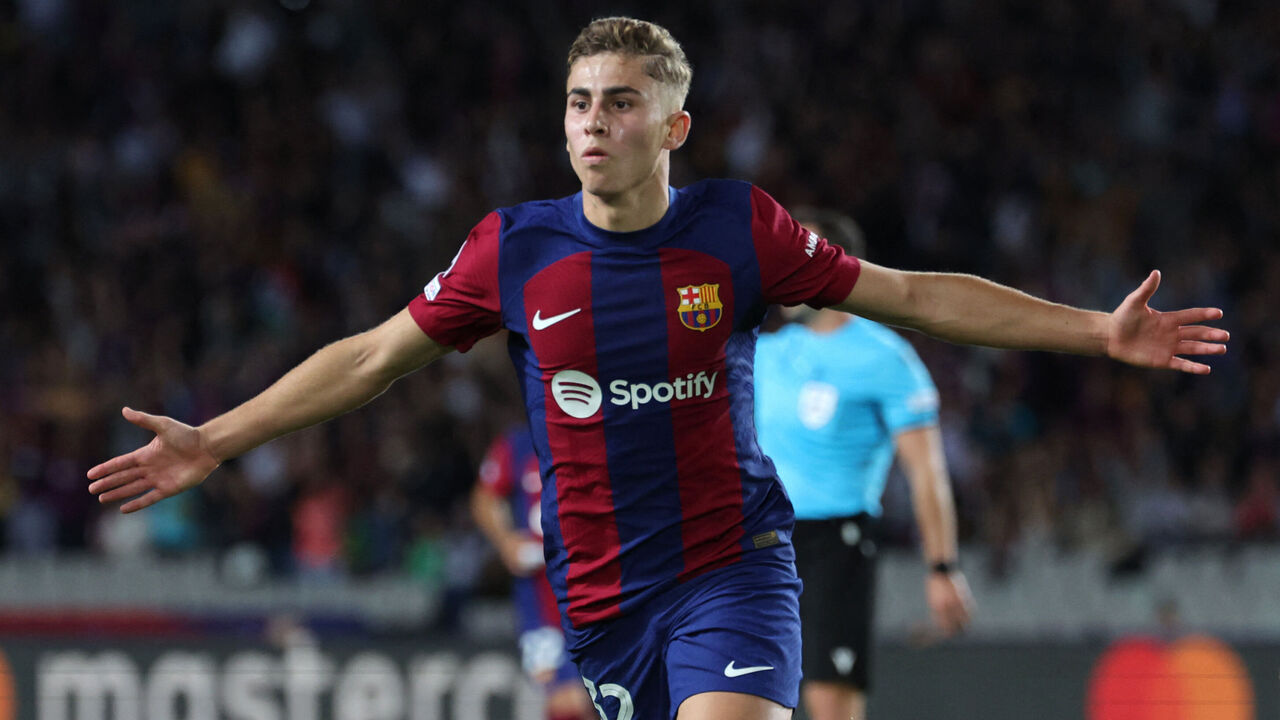
Despite mortgaging a good chunk of down-the-line revenue for cash-flow purposes, Barcelona still have quite the future ahead of them.
Every week, one of Barcelona’s La Masia graduates steals the spotlight. Earlier this month, it was Lamine Yamal, who became La Liga’s youngest scorer at 16 years old. Last weekend, it was Marc Guiu, who scored the winning goal mere seconds into his La Liga debut. And on Wednesday, it was 17-year-old Fermin Lopez, who struck the crossbar and winner in Barcelona’s 2-1 win over Shakhtar Donetsk. The 20-year-old made headlines during the club’s preseason tour of the U.S., scoring and assisting in a memorable victory over Real Madrid at a sold-out AT&T Stadium, and he once again showed his class against Shakhtar.
Credit must go to Xavi Hernandez, an academy graduate himself, for giving these youngsters a chance to shine and being one of the few people at the club to prioritize the future. – Lopopolo
Dream UCL debut for red-hot Gimenez
There’s hardly anyone in better form right now than Santiago Gimenez. The Mexican international has Group E leaders Feyenoord in an advantageous position to progress to the Champions League knockouts after a sparkling performance in Wednesday’s 3-1 win against Lazio.
Playing in his first-ever Champions League game after missing the Dutch team’s first two matches through suspension, the 22-year-old didn’t let the occasion get to him, punishing Lazio’s defense with two goals to add to his impressive haul this season. He nearly had a debut hat-trick, but his strike in the first half was overturned by VAR. Gimenez is the top scorer in Europe’s top seven leagues, and he now has 15 goals in 11 matches across all competitions. If he keeps this pace up, don’t be surprised if Feyenoord pull off an upset or two in the knockout rounds. – Brunt
Eriksen’s contribution key on night of redemption
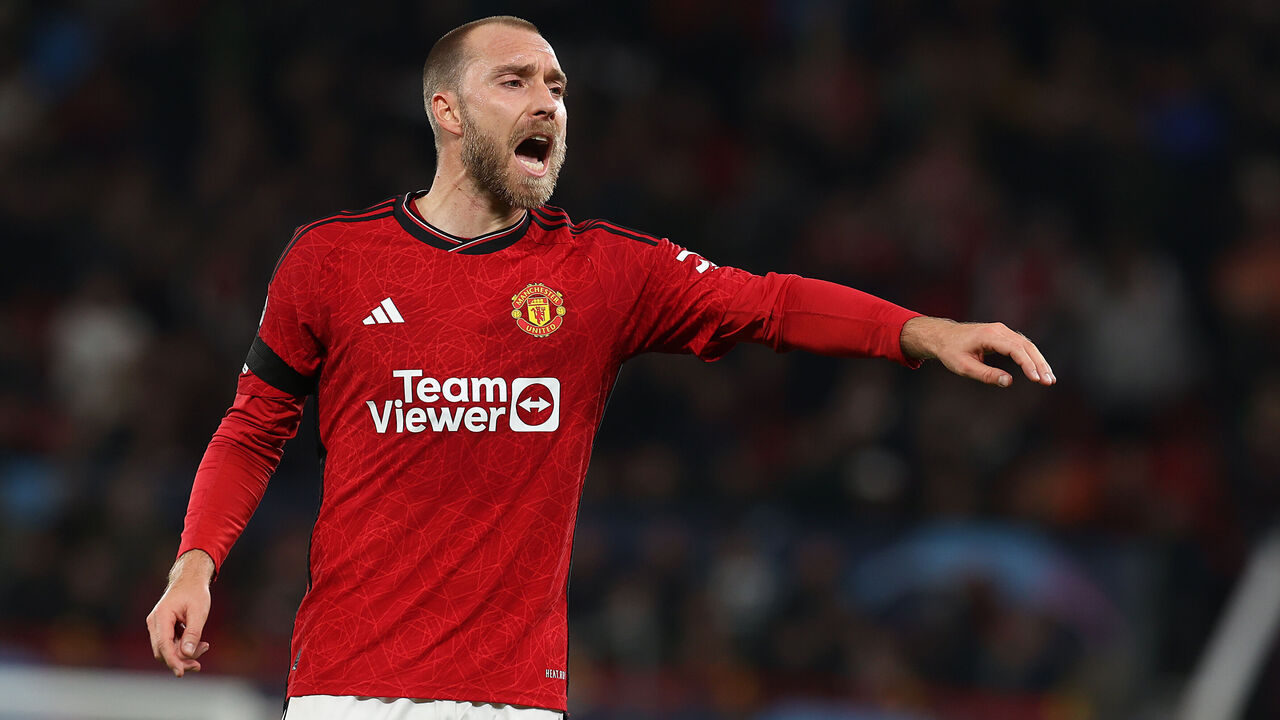
The referee blew for the interval at Old Trafford with around 15 seconds of the 45 minutes remaining. And for that, we should be grateful. Manchester United lacked courage, chemistry, and anything close to entertainment value in the opening period against FC Copenhagen. It was an ugly spectacle. Something – anything – had to change.
Christian Eriksen replaced the unimpressive Sofyan Amrabat and instantly brought more imagination and belief to Erik ten Hag’s ranks. Harry Maguire’s match-winning header, three days after his standout performance against Sheffield United, and Andre Onana’s penalty save in the final second neatly provided a redemption tale for both players, but that shouldn’t hide the fact that Eriksen was the true architect of a crucial 1-0 victory that belatedly ignites the Red Devils’ European campaign. – Rouse
Copenhagen can’t catch a break
Jordan Larsson never looked like scoring. The son of Henrik, the Swedish icon who had a brief loan spell at Manchester United, had the ball placed on the penalty spot, but the protests and encroaching from the home side delayed his attempt. He picked up the ball again and kissed it, and all the while appeared wary of looking up at Onana’s goal. Once he took the penalty in the 97th minute, it was too close to the middle of the goal and at a convenient height for Onana to paw away. Diogo Goncalves also hit the post for the visitors in the fifth minute.
Copenhagen have one point from three Group A matches, but they could easily have seven or nine. The Danes were leading 2-0 at Galatasaray in their opening match and were under little pressure until Elias Jelert was sent off for a second yellow card. The Turkish giants salvaged a draw after goals in the 86th and 88th minutes. In Copenhagen’s second outing, they sat deep and frustrated Bayern Munich while threatening their illustrious opponents on the counter. Mathys Tel struck in the 83rd minute to glean a 2-1 win for Bayern. And now, they’ll return from a trip to Manchester United with nothing to show from a battling, disciplined performance. – Rouse
Jesus brings the chaos for Arsenal
Gabriel Jesus’ last 17 starts in the Champions League:
? 14 goals
? 4 assistsRidiculously impressive. ?? pic.twitter.com/9IZE1T9z4H
— Squawka (@Squawka) October 24, 2023
“You don’t know what I’m going to do. I create chaos. I started at Palmeiras at 15, 16. Before that I only played in the streets. I bring the streets to the pitch. That’s my quality.” That’s how Gabriel Jesus responded last month when asked to describe his game. That ability to create mayhem and leave the opposition in disarray was on display Tuesday, as the Brazilian turned three Sevilla defenders inside out to craft an assist for Arsenal’s opening goal, then scored a gorgeous one of his own, seemingly out of nowhere, to lead the Gunners to a 2-1 win. His unpredictability is what makes him so special. Jesus can break games open at a moment’s notice. Unfortunately, that unpredictability also extends to his availability; Jesus, who’s struggled with injuries during his Arsenal tenure, saw his memorable outing marred by a hamstring issue in the final minutes of the match. Arsenal have depth up front, but none of their backup options can replicate Jesus’ impact. – Nesci
Raspadori’s time to shine
With star striker Victor Osimhen expected to be sidelined for up to one month with an injury sustained during the recent international break, Giacomo Raspadori has an opportunity to step up in a time of need for Napoli. The diminutive Italian has primarily come off the bench since joining the club last year, but in two games with Osimhen sidelined, Raspadori has a goal and an assist, scoring the lone tally of the match against Union Berlin on Tuesday after a strong performance versus Hellas Verona in the league this past weekend. His understanding and connection with Khvicha Kvaratskhelia, while not nearly on the same level as that of Osimhen, continues to grow. Few players, if any, can replace the Nigerian’s scoring output, but Raspadori is going to have a prolonged chance to prove he deserves more minutes even after his prolific teammate returns. – Nesci
Stat of the week
Two more goals for Erling Haaland in Manchester City’s win against Young Boys. Not bad for a striker who’s supposedly out of form.
Erling Haaland is 23 years old and has only played 31 #UCL games….
He’s already in the top 20 all-time Champions League goalscorers. ? pic.twitter.com/iJbquL7Hdq
— Squawka (@Squawka) October 25, 2023
Tweet of the week
Who would’ve thought Maguire and Onana would be lapping up the applause after Manchester United clinched their first group-stage win of the season?
Maguire and Onana pic.twitter.com/sdUz632ZrE
— Tom Williams (@tomwfootball) October 24, 2023

Breaking down thrilling EPL title race with 10 games left

Euro 2024 playoffs: Miraculous Ukraine comeback, big result for Wales

Managerial merry-go-round: Predicting hires for marquee jobs

The Champions League's best XI so far

35 stars who will define the summer transfer window

Ajax show Juventus that winning requires more than individual quality
Trending
-
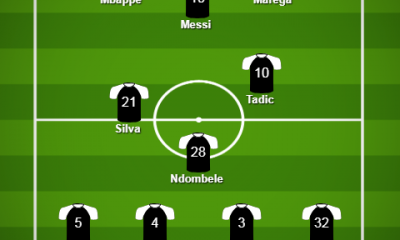
 Champions League5 years ago
Champions League5 years agoThe Champions League's best XI so far
-
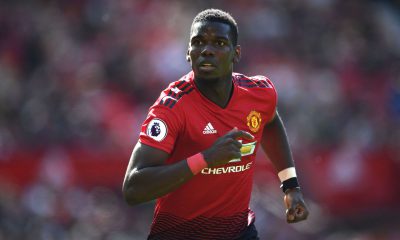
 Serie A5 years ago
Serie A5 years ago35 stars who will define the summer transfer window
-

 Serie A5 years ago
Serie A5 years agoAjax show Juventus that winning requires more than individual quality
-
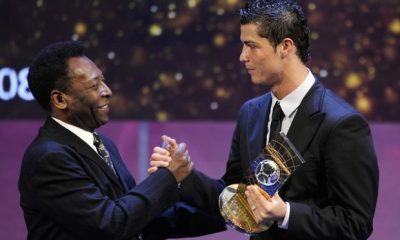
 Uncategorized3 years ago
Uncategorized3 years agoIFFHS publishes the list of top scorers in football history – Romario first, Ronaldo third
-
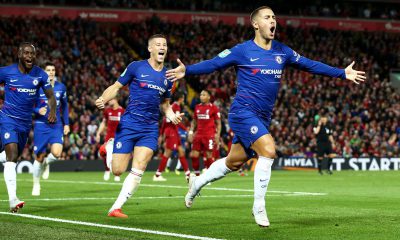
 Premier League5 years ago
Premier League5 years agoTransfer grades: Assessing Hazard’s move to Real Madrid
-
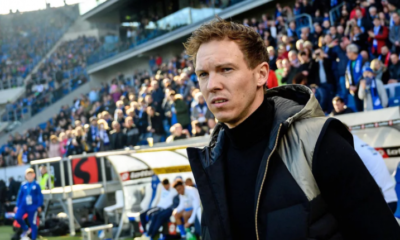
 Sports5 years ago
Sports5 years agoReady Newest Trainer in Bundesliga History, retire SOLSKYER.
-
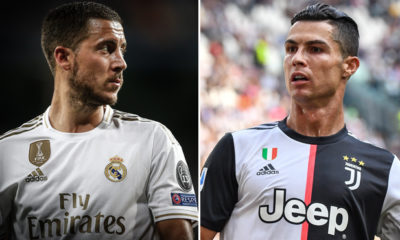
 Sports5 years ago
Sports5 years agoWenger: Hazard can’t replace Ronaldo.
-

 Sports5 years ago
Sports5 years agoMastur Talent Returns: In Milan I was a chance to make money, penalized me for growing up as a footballer.

